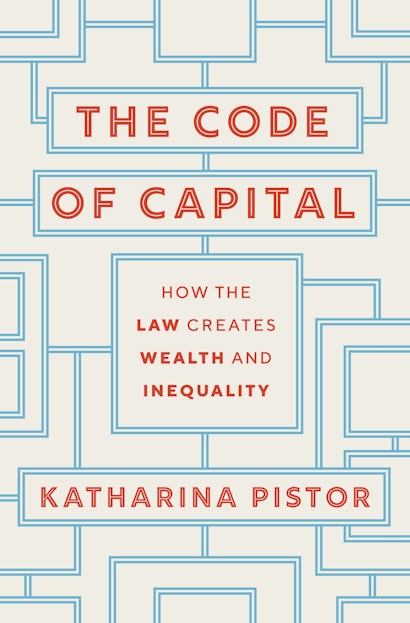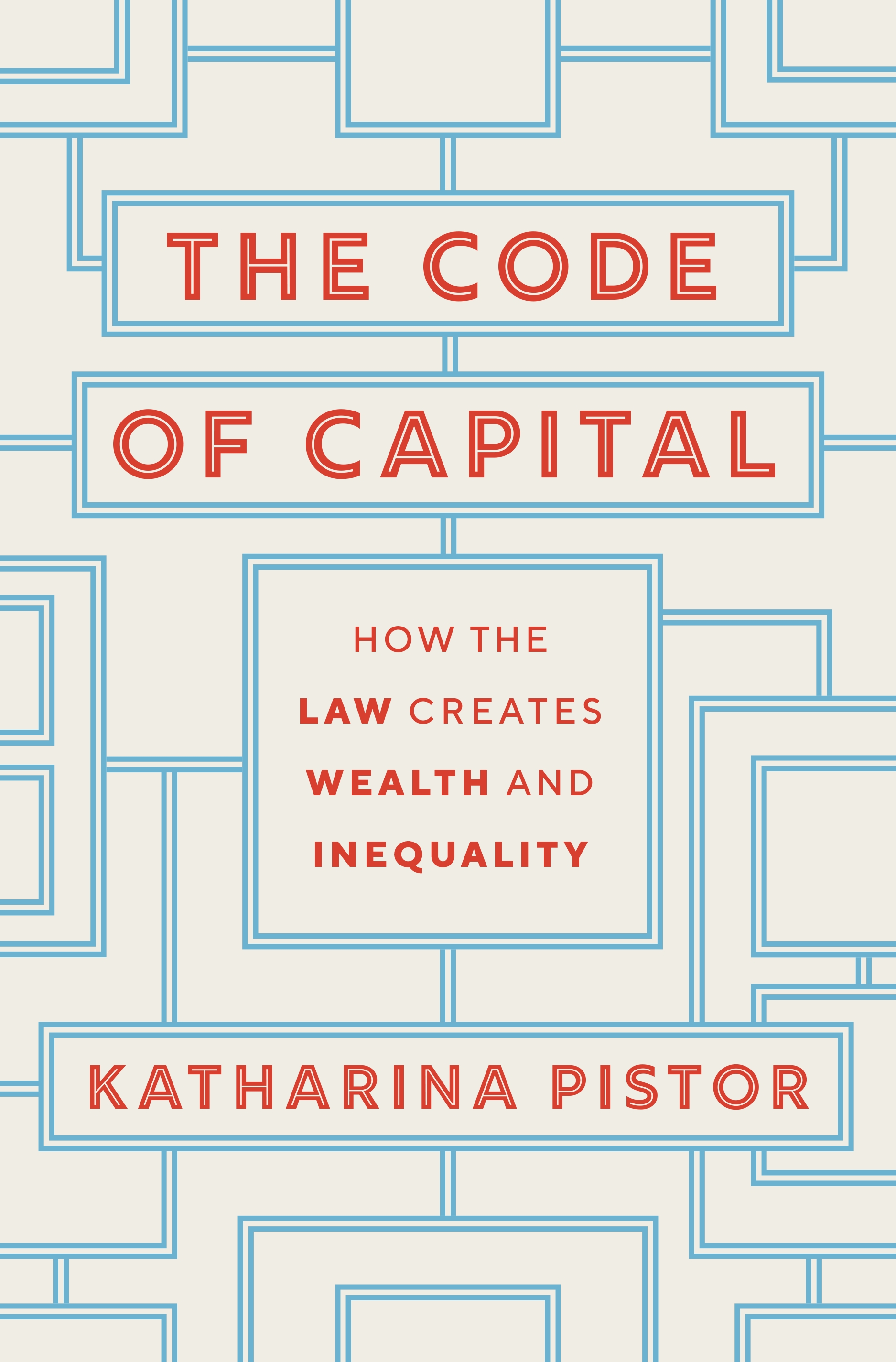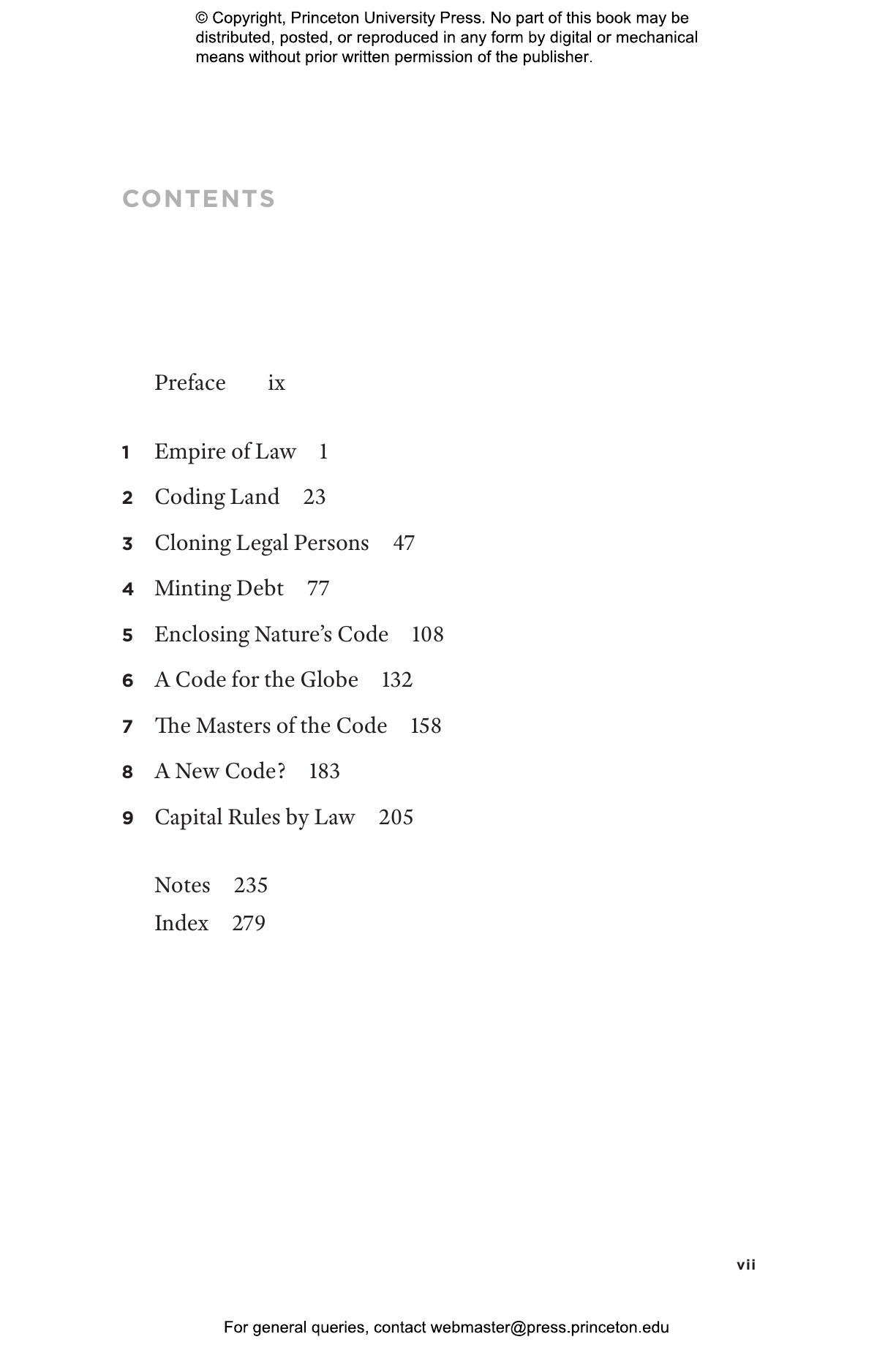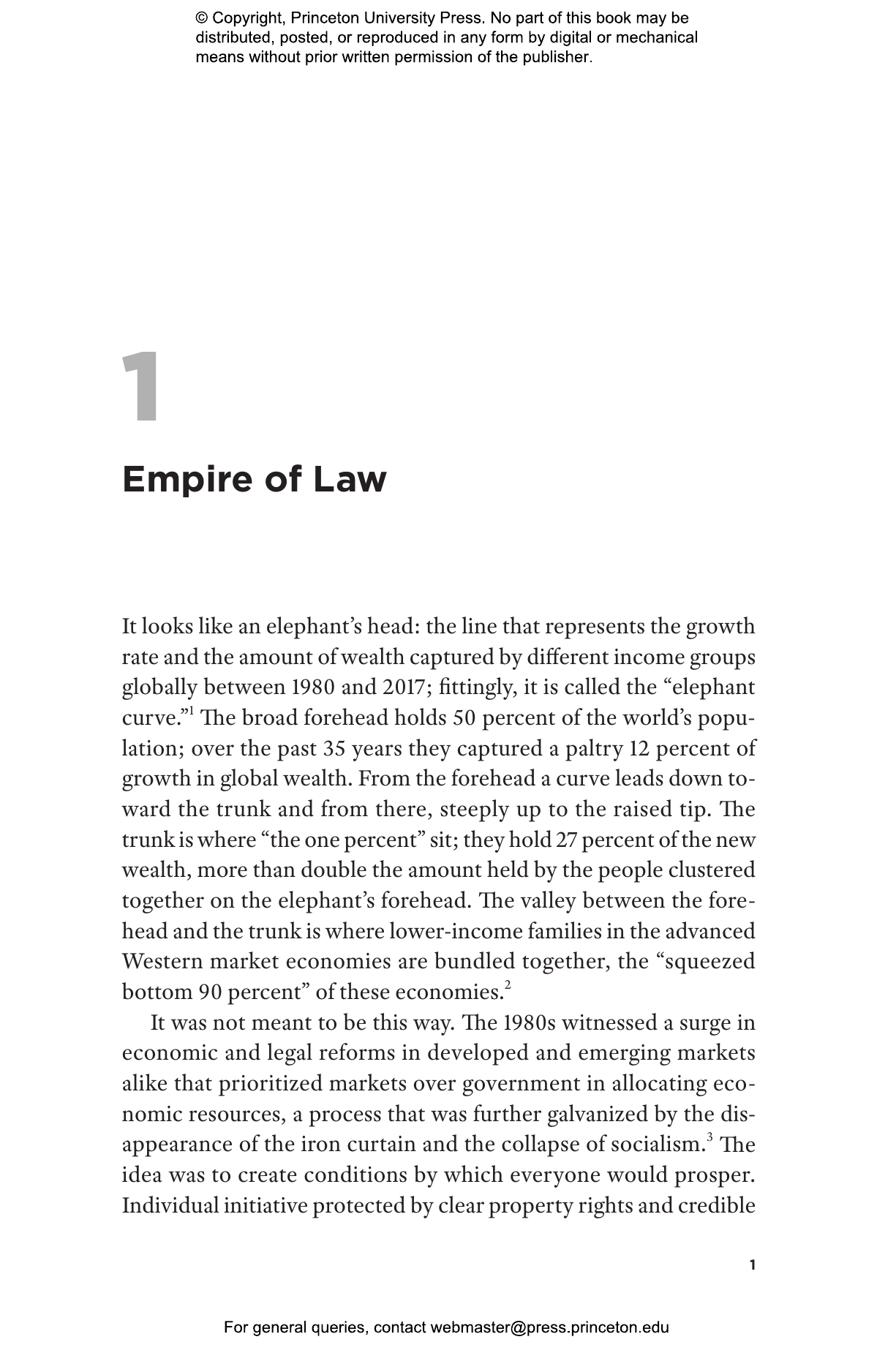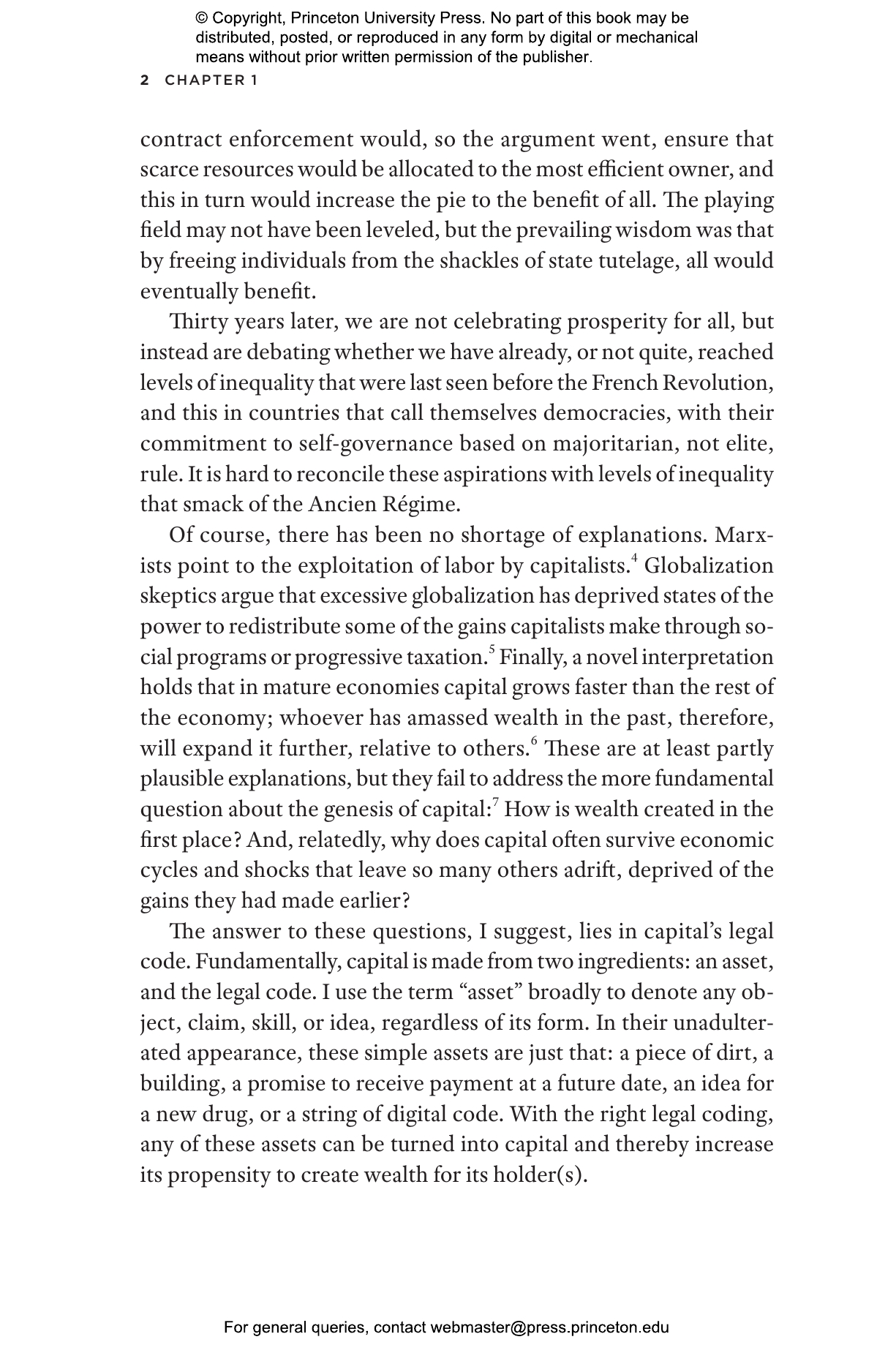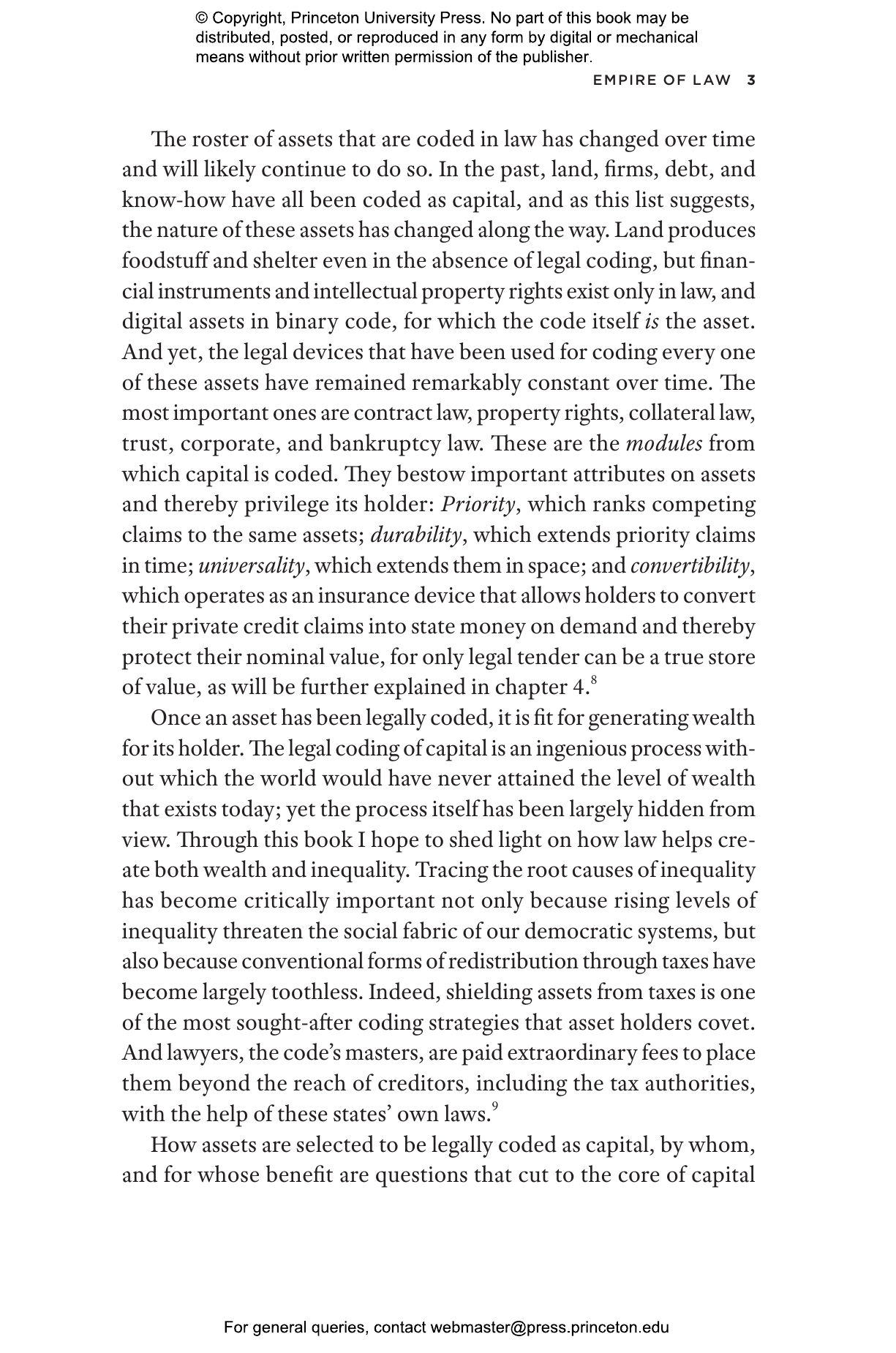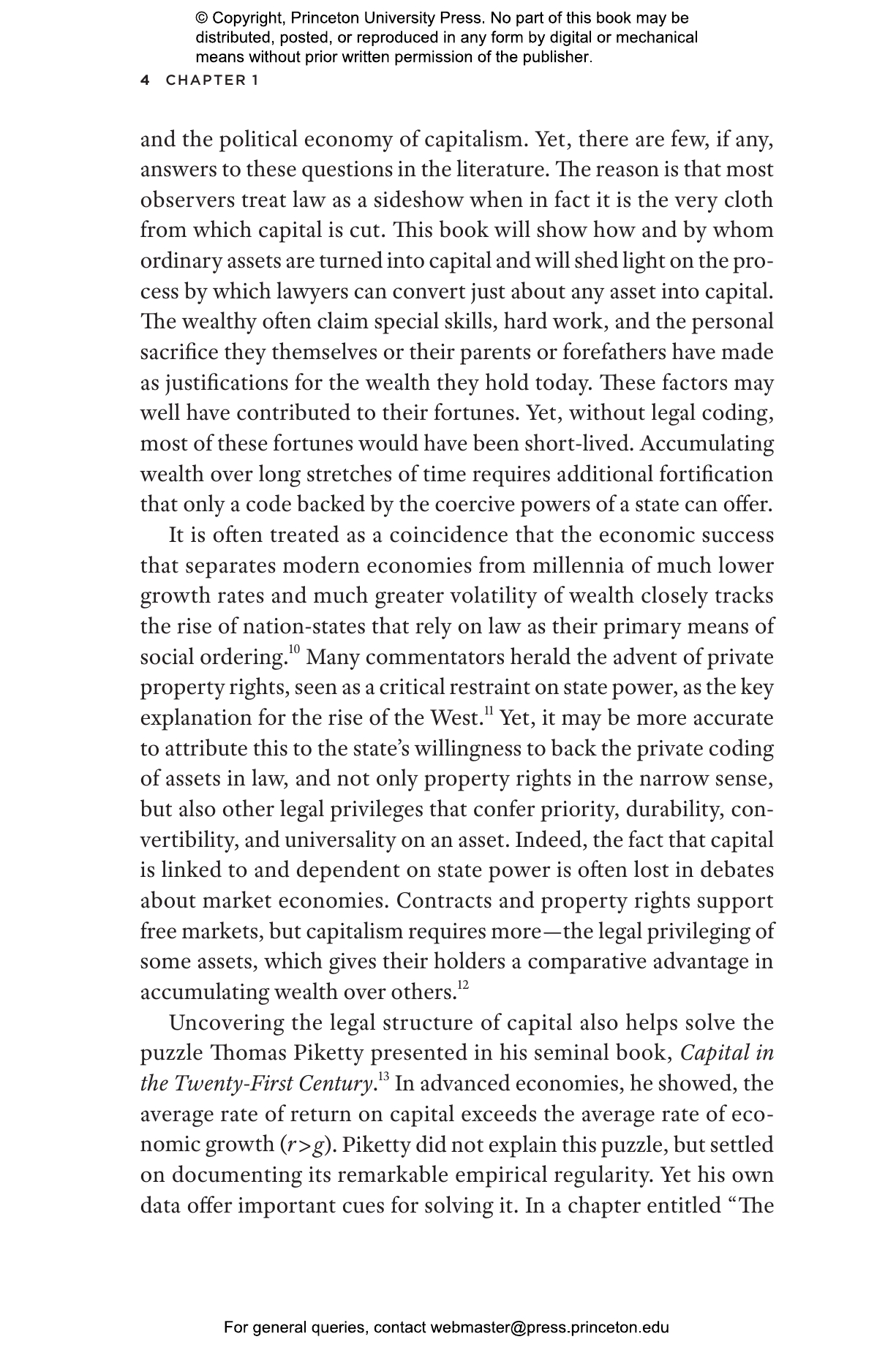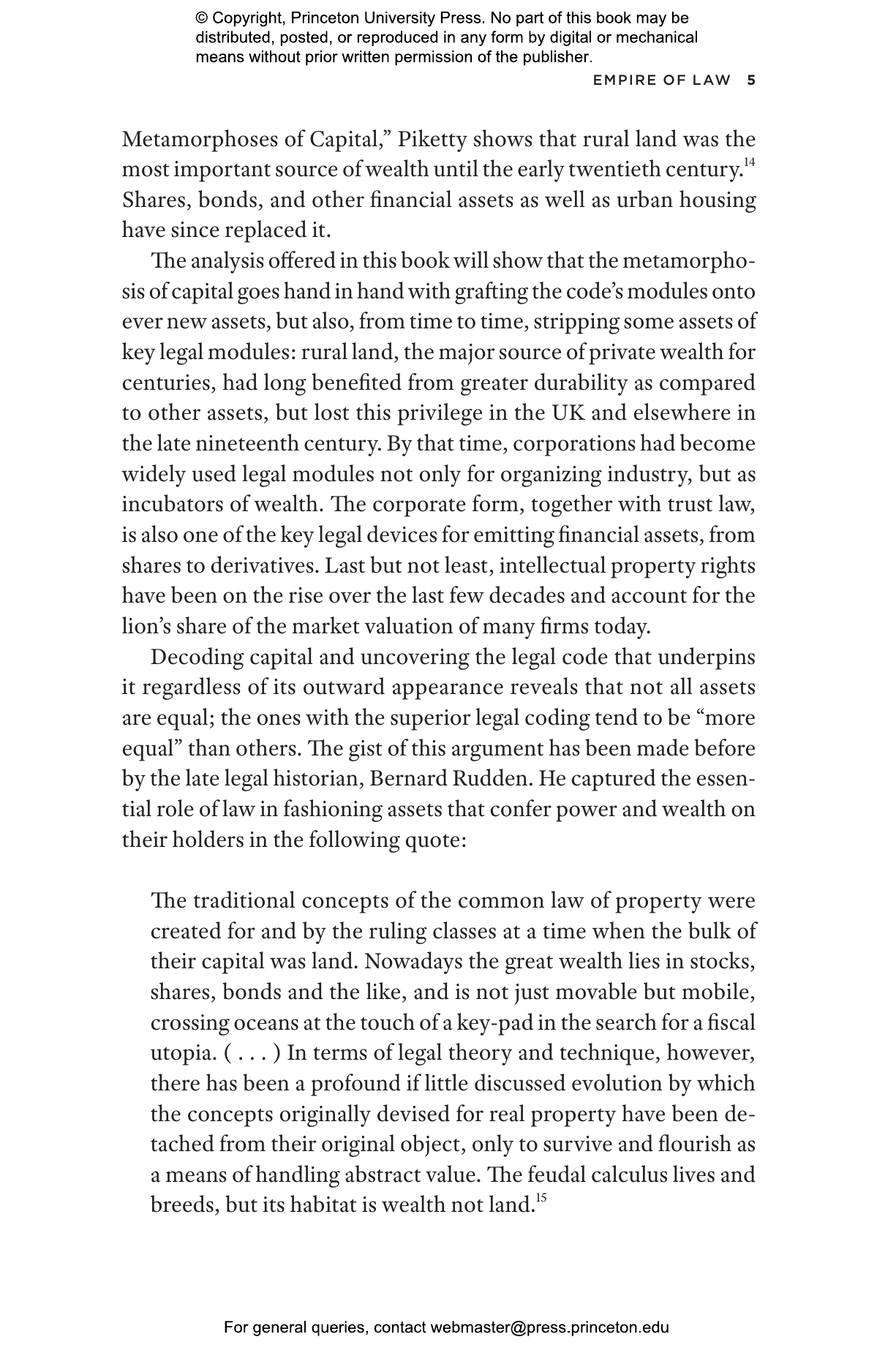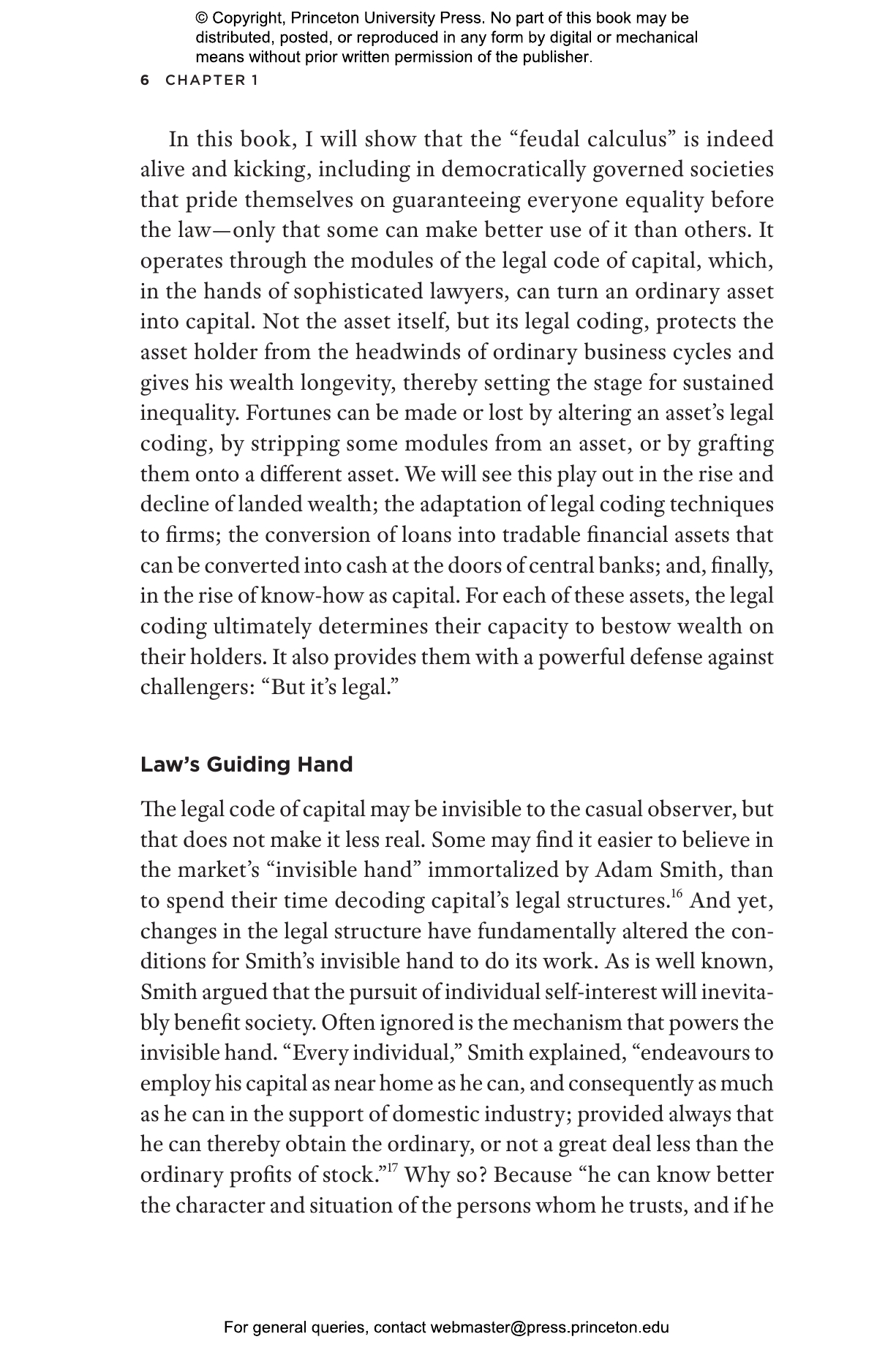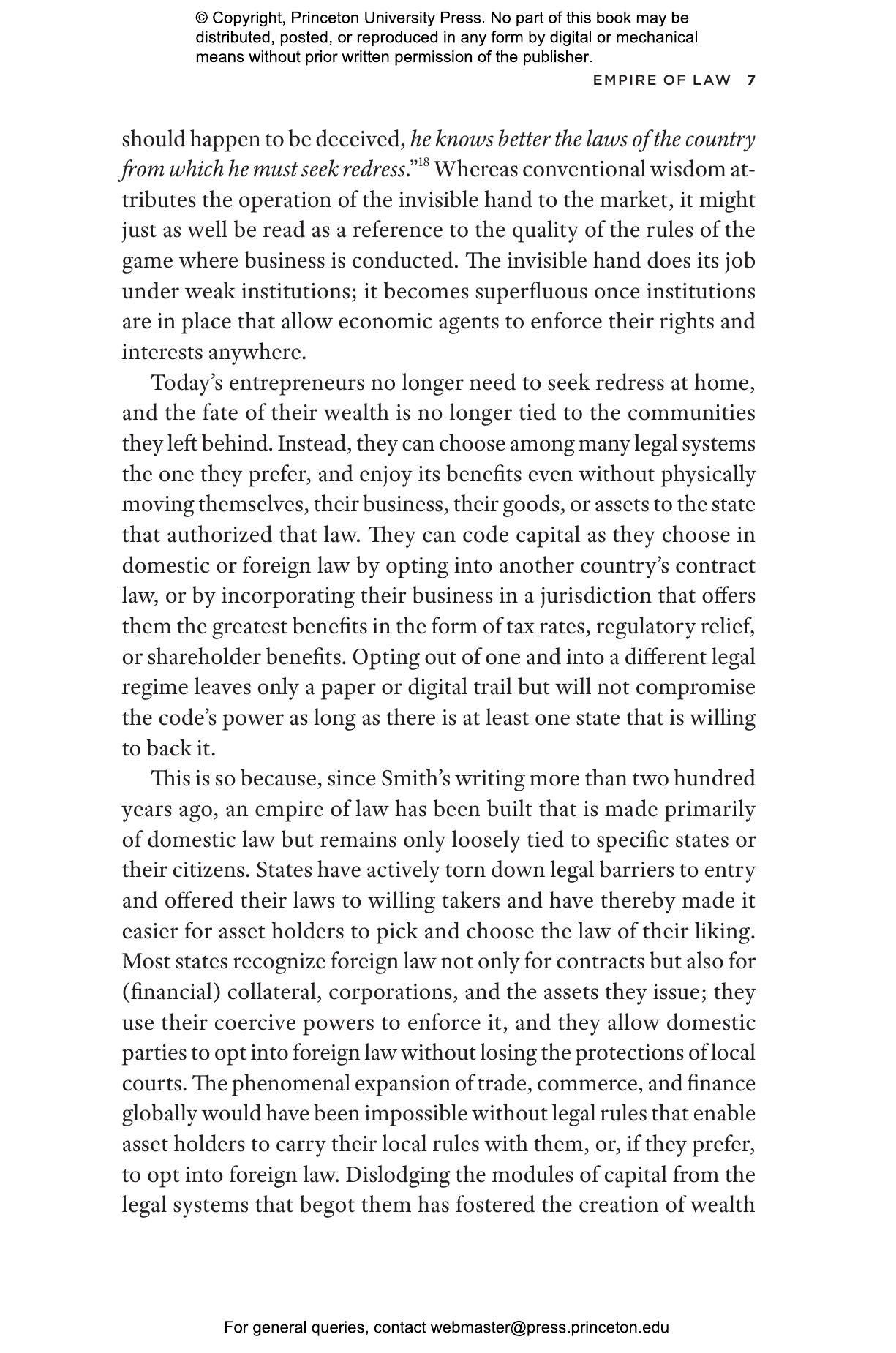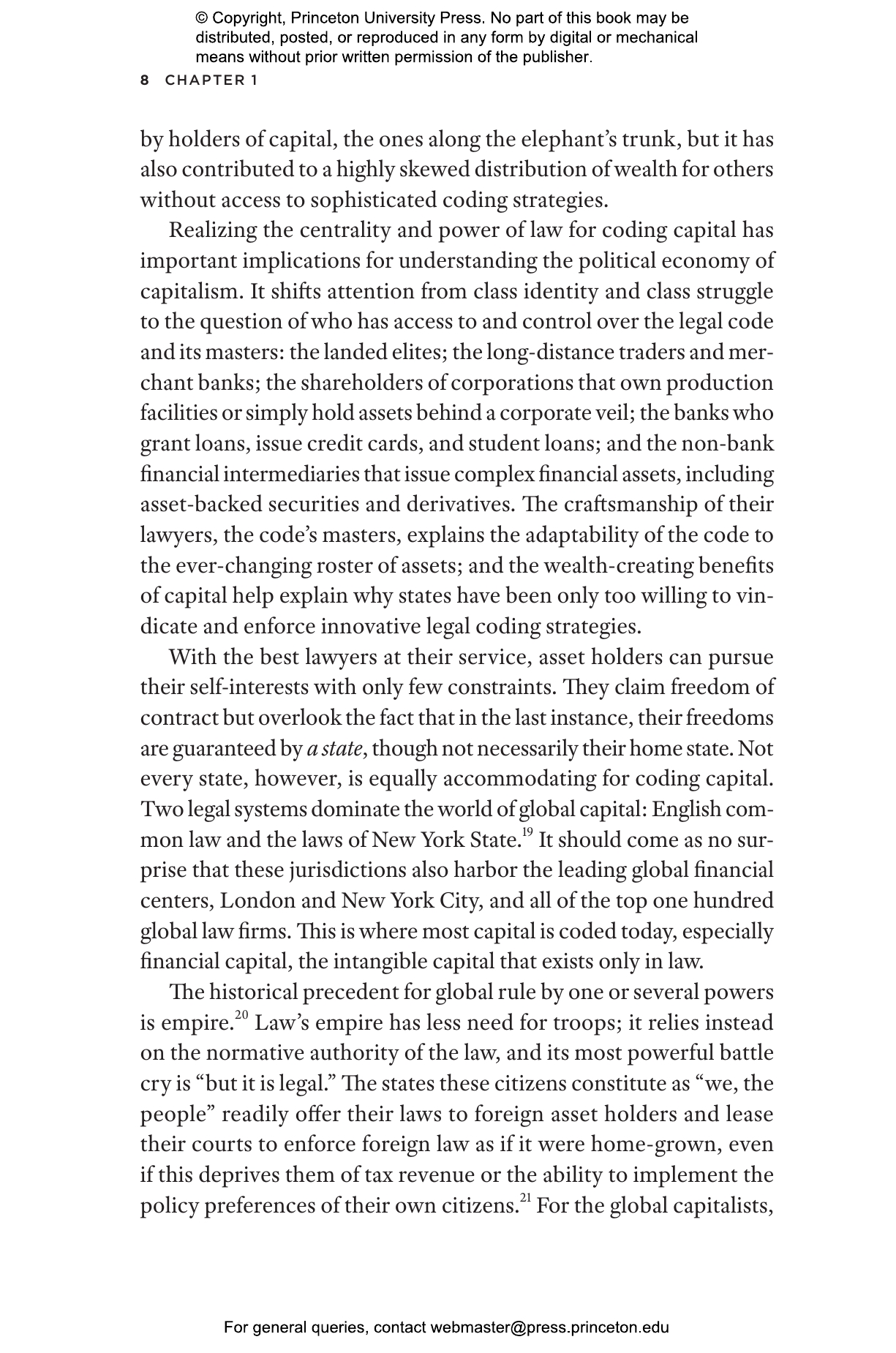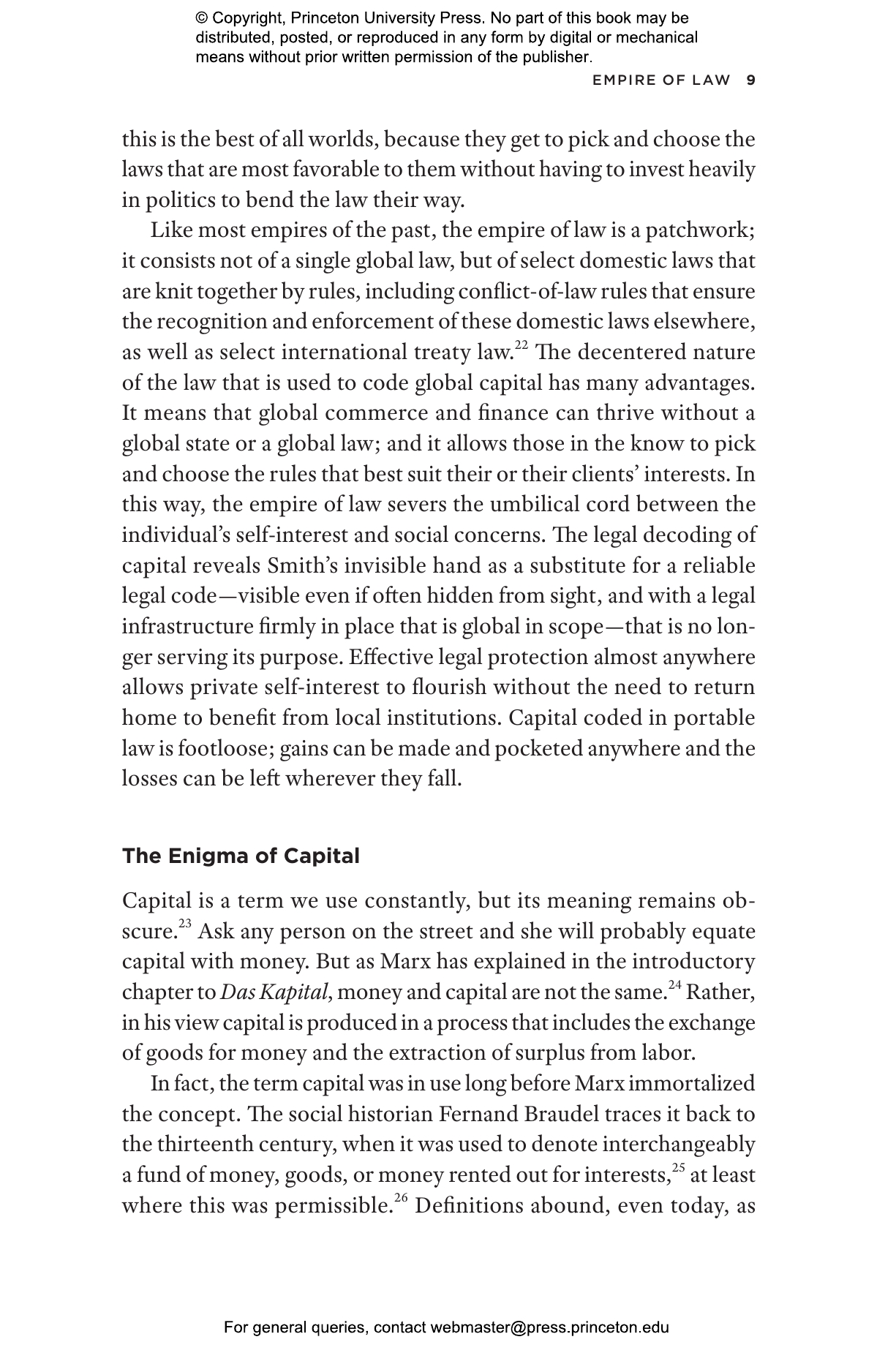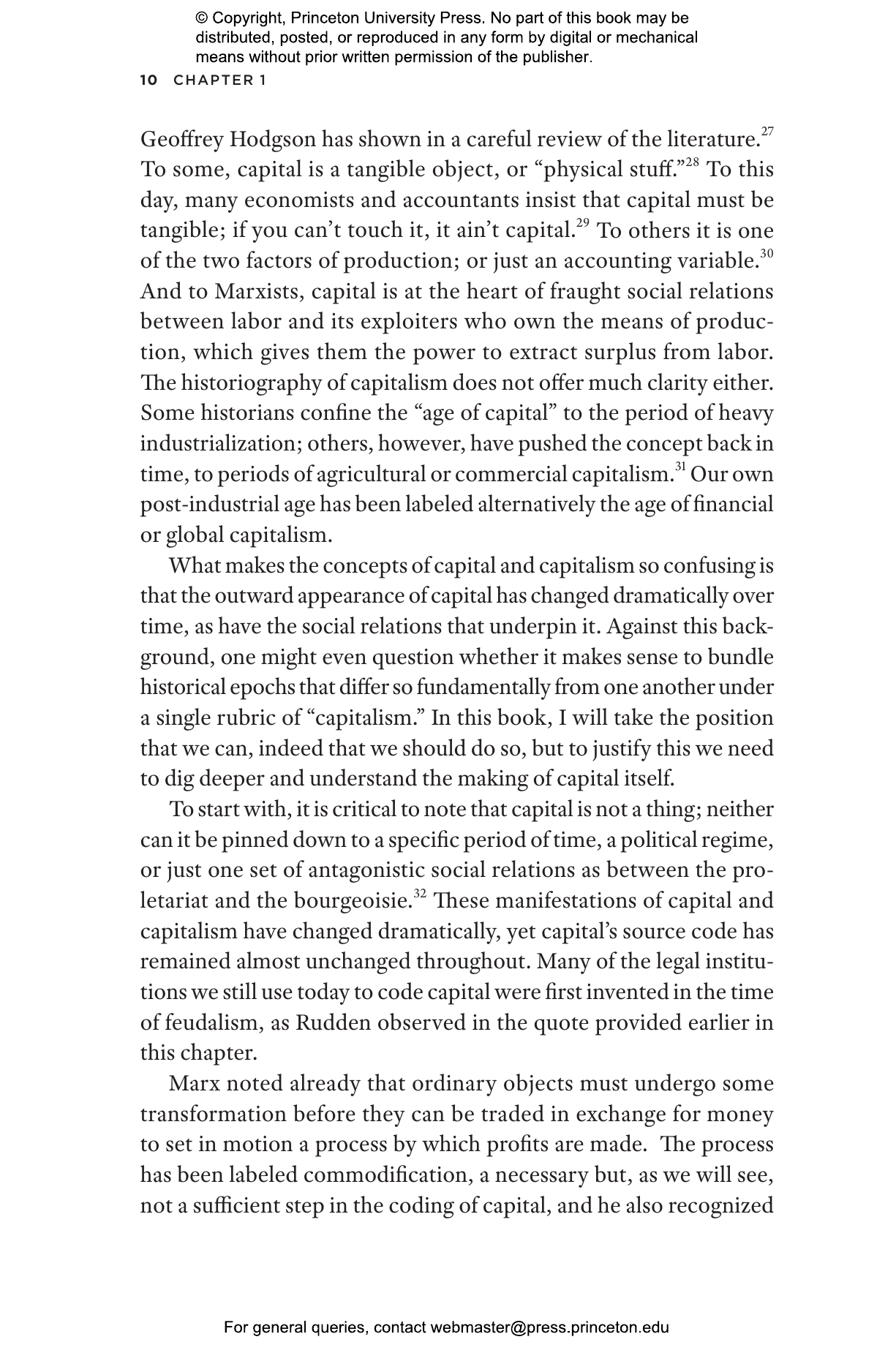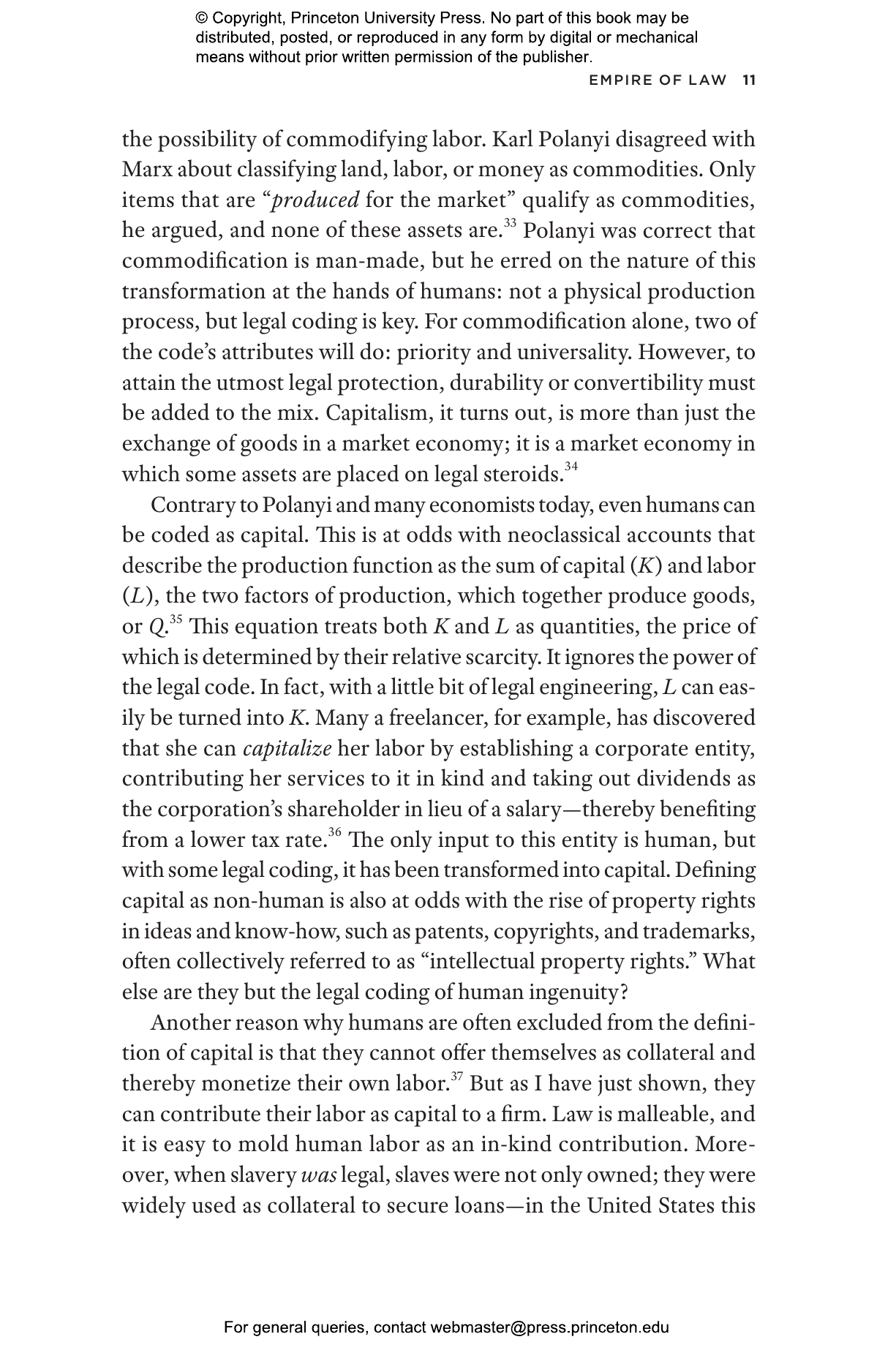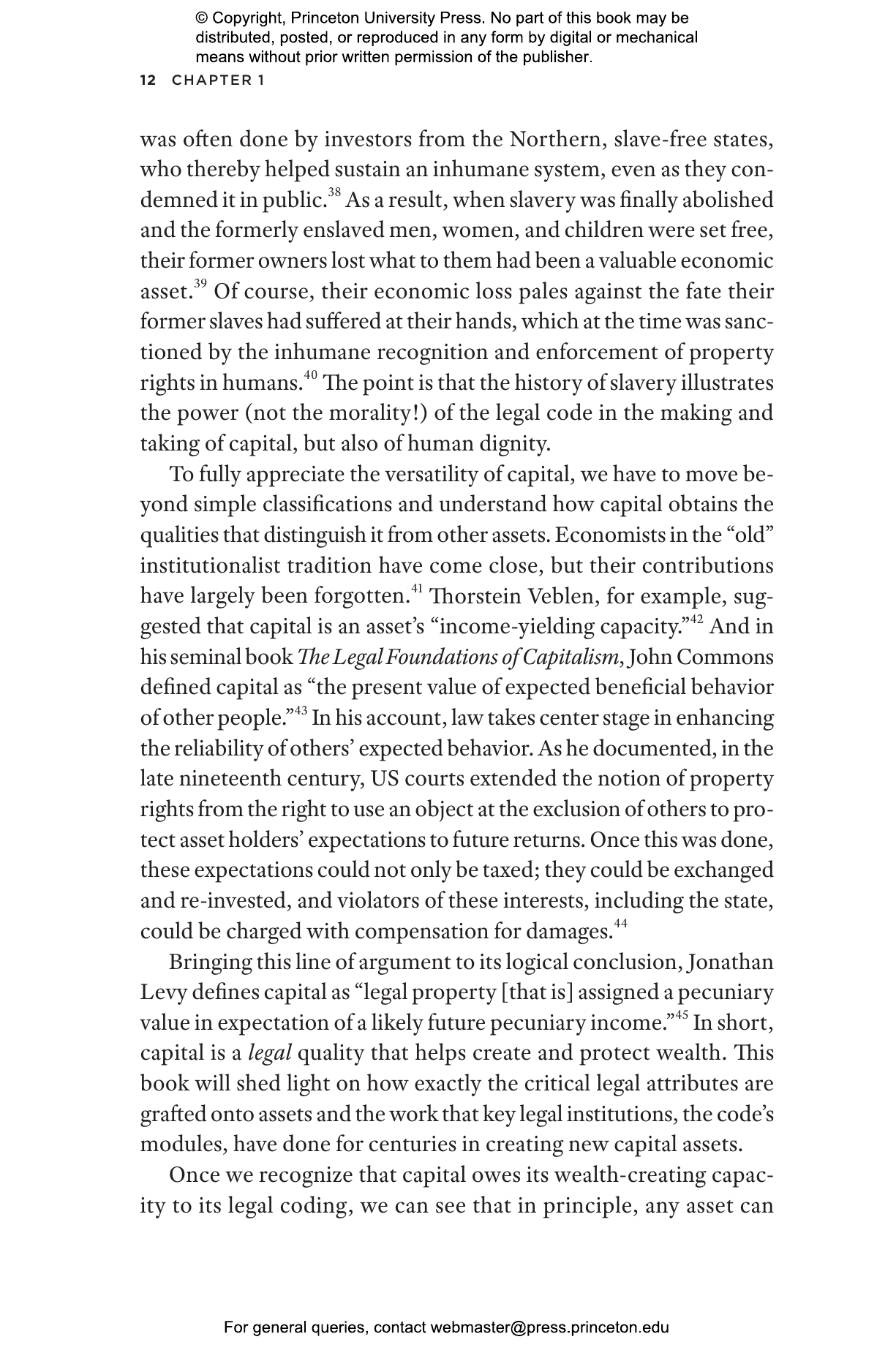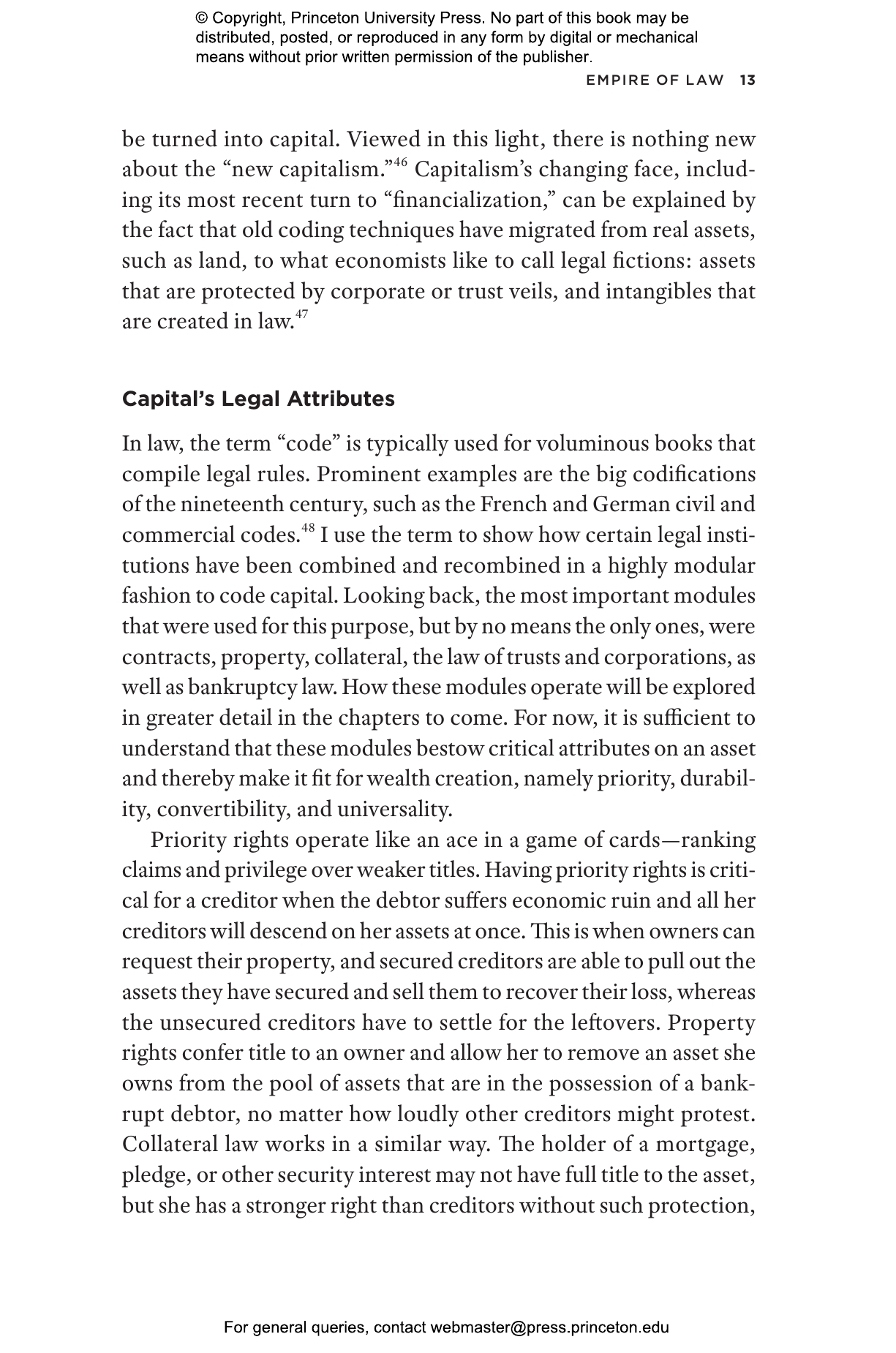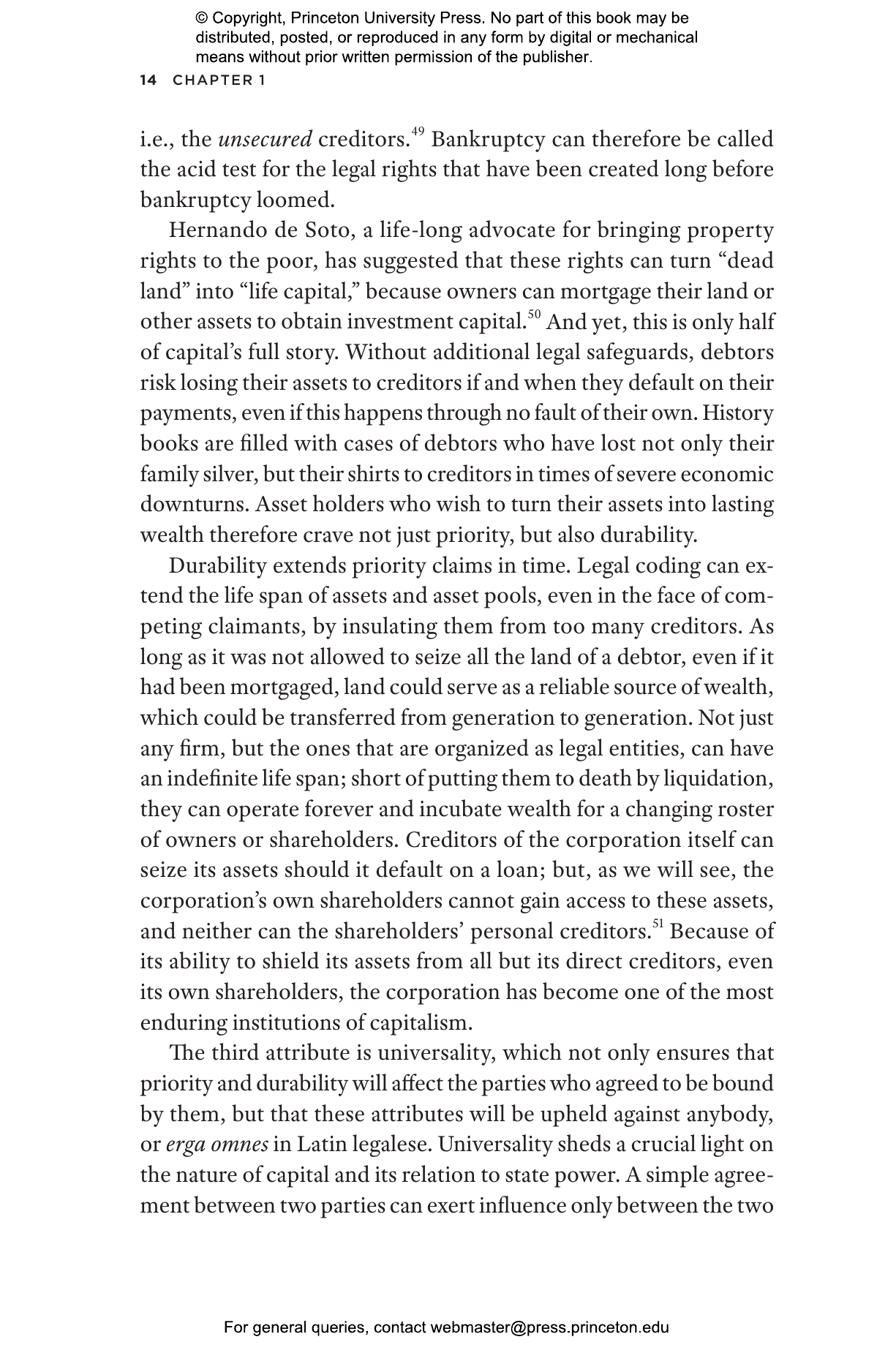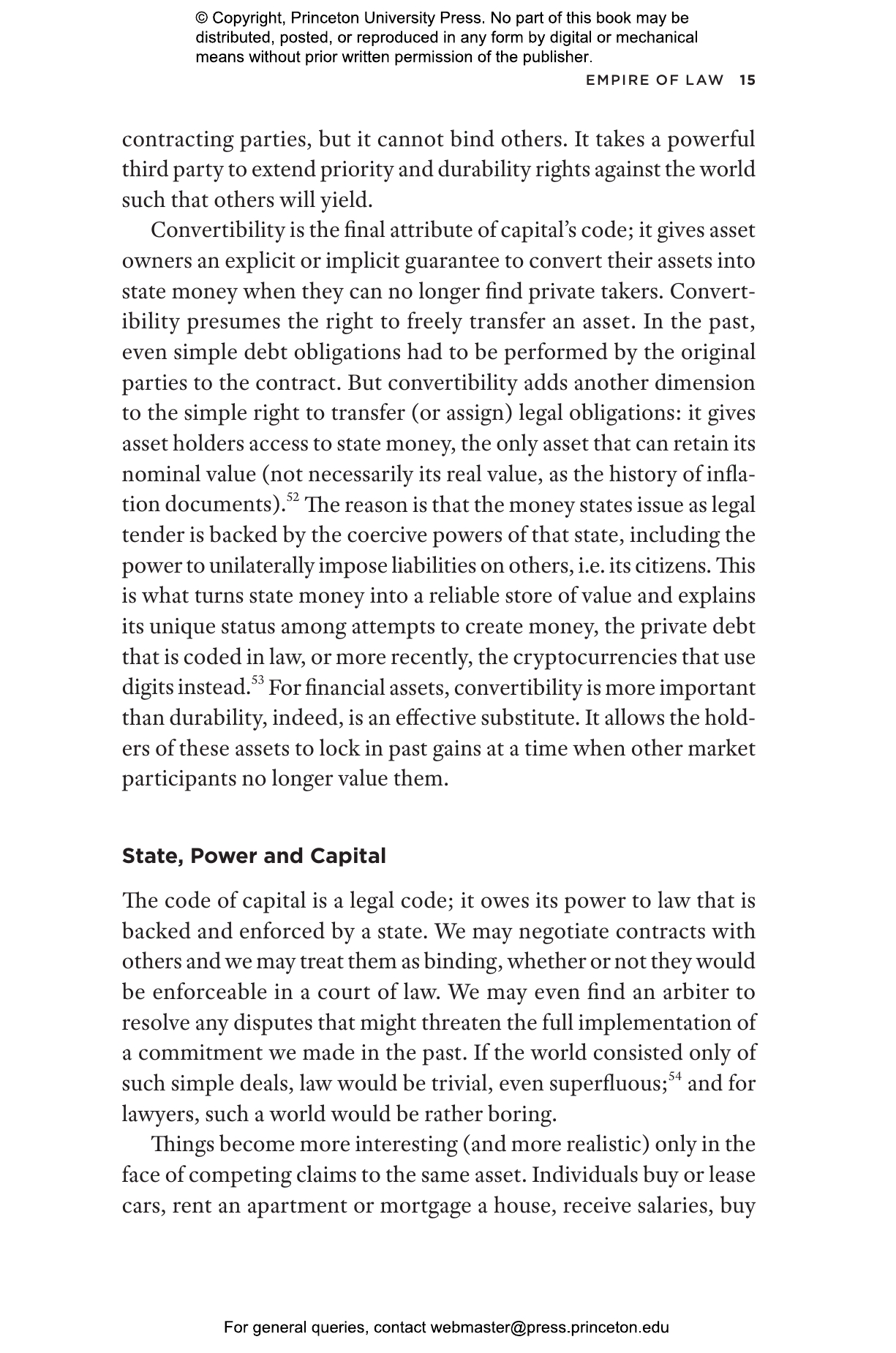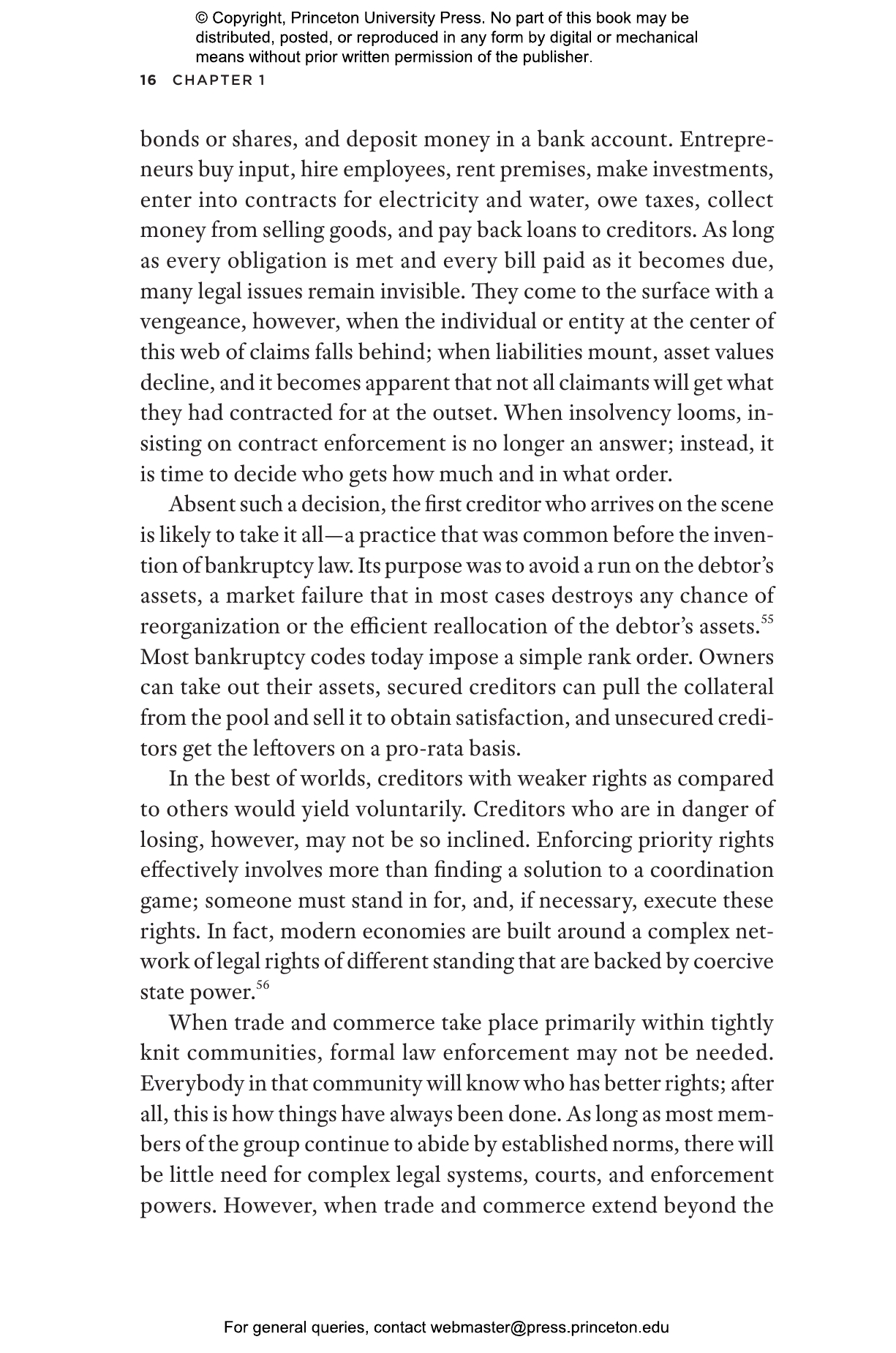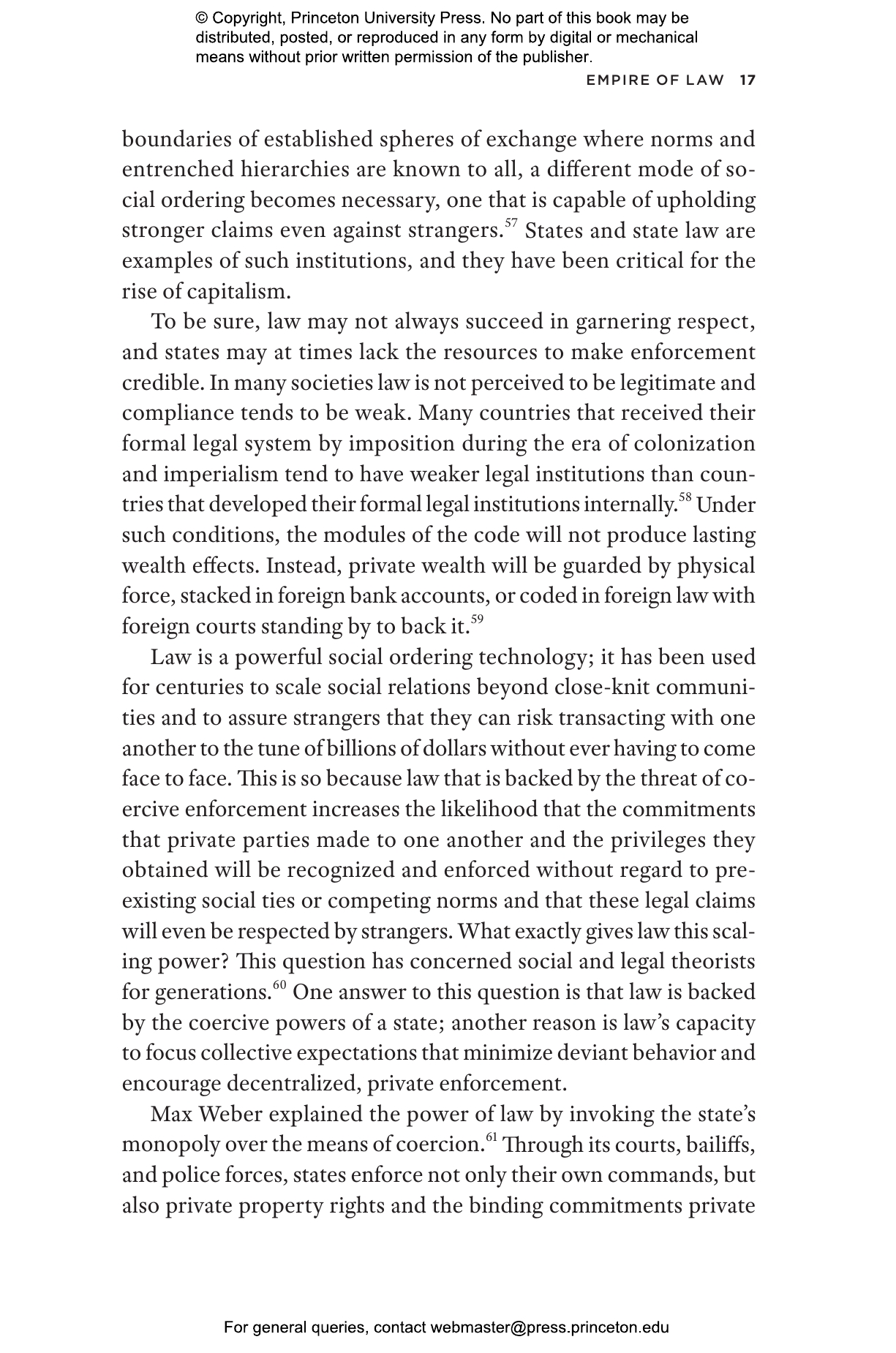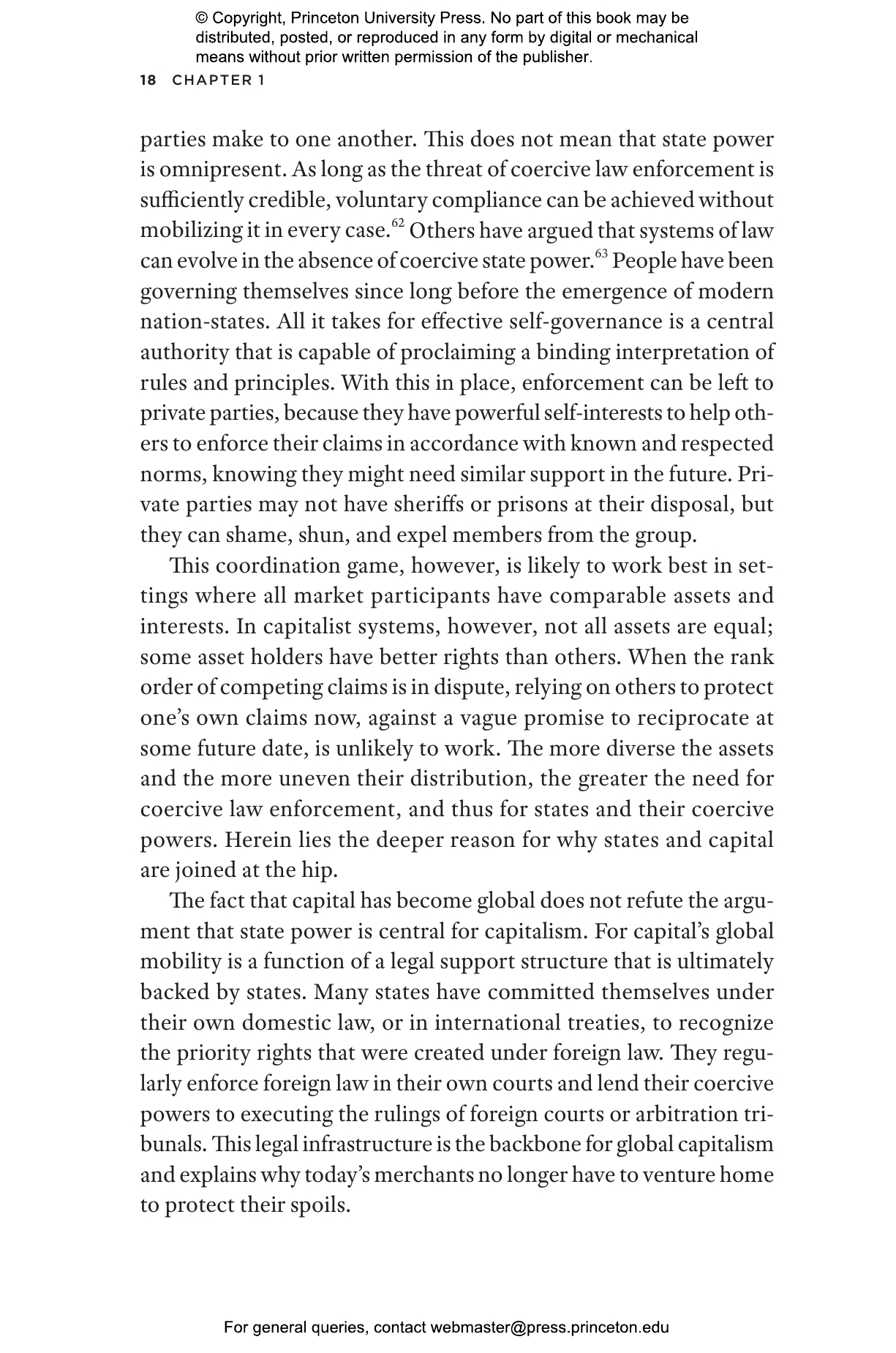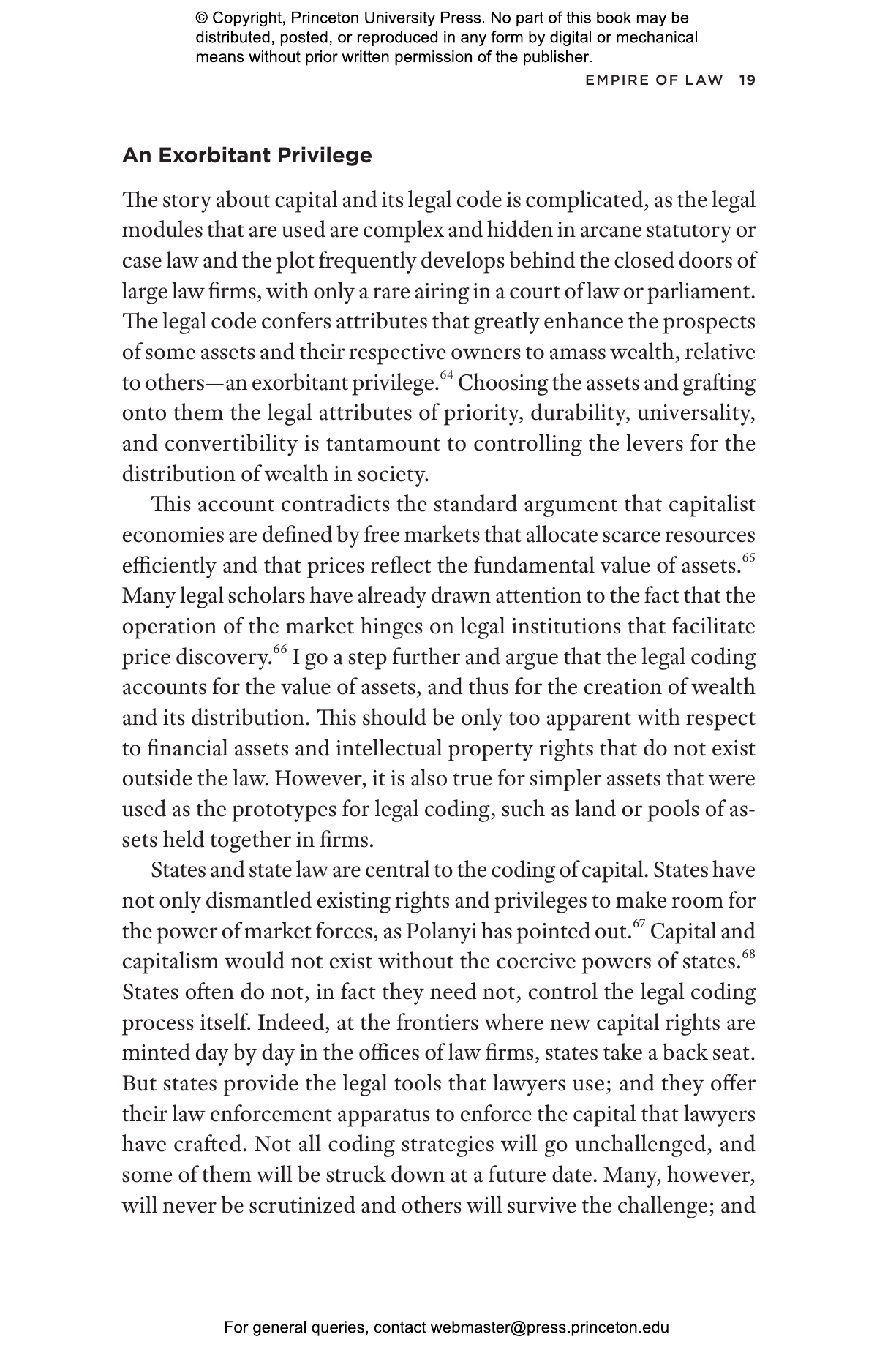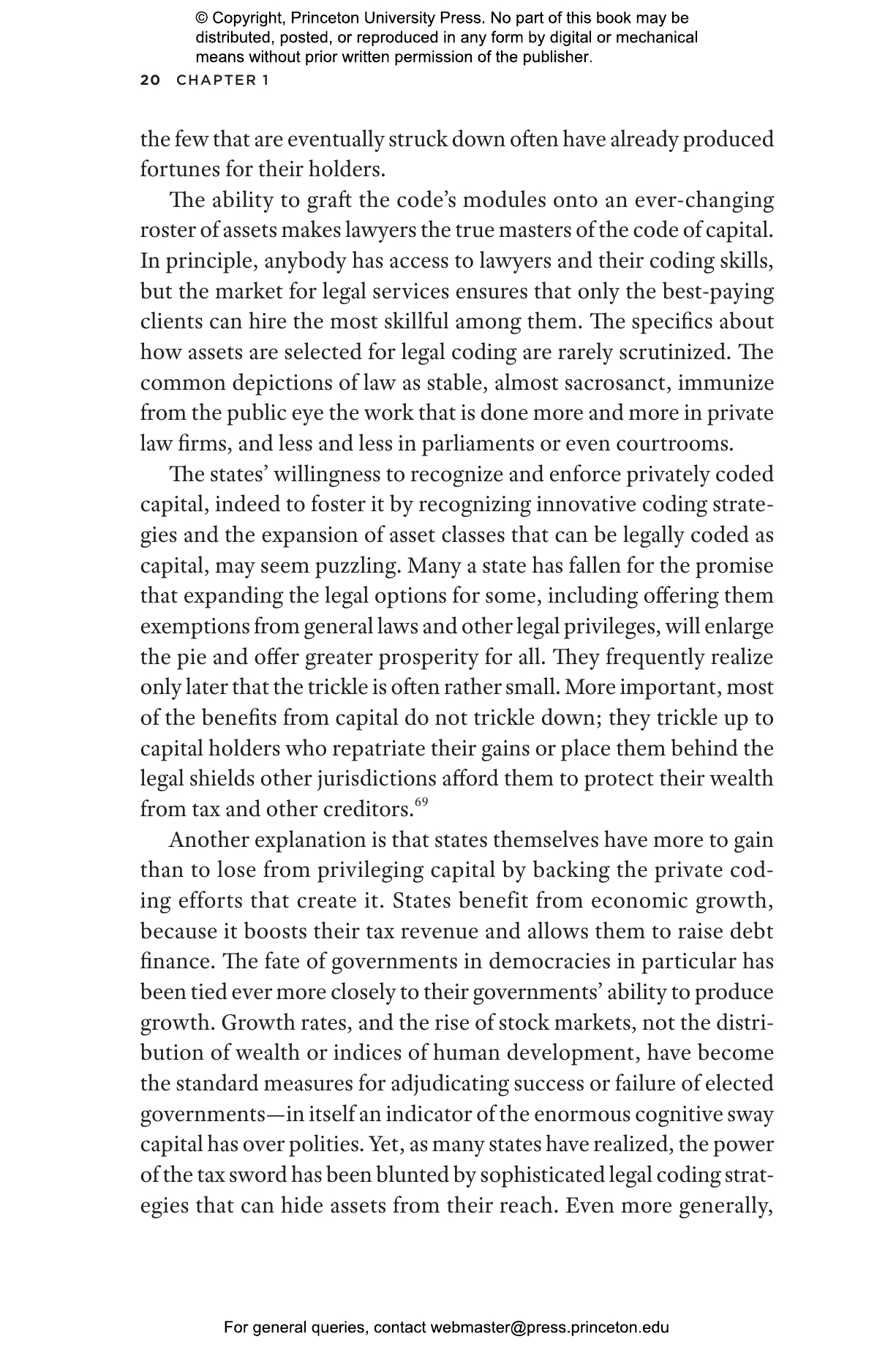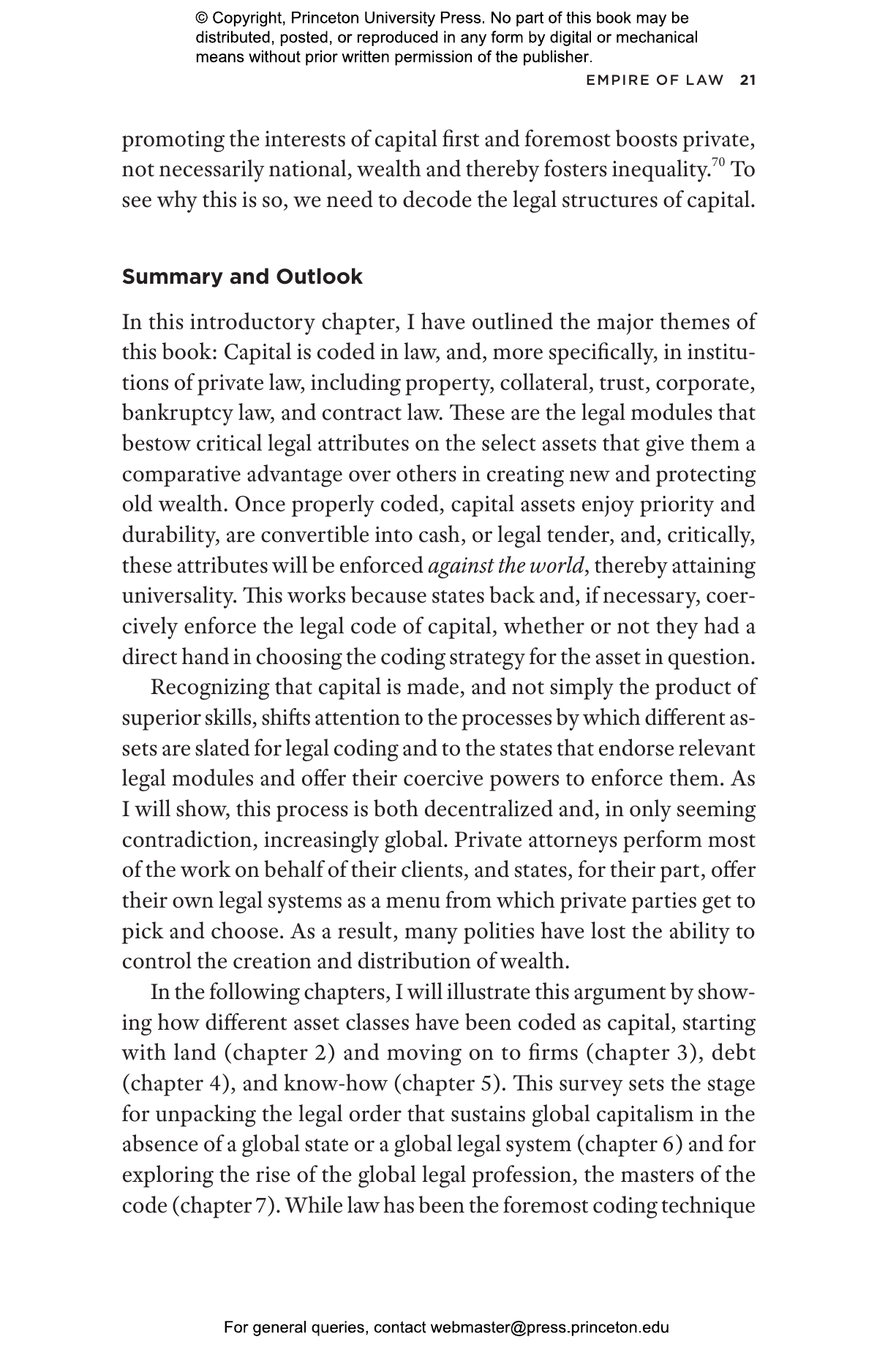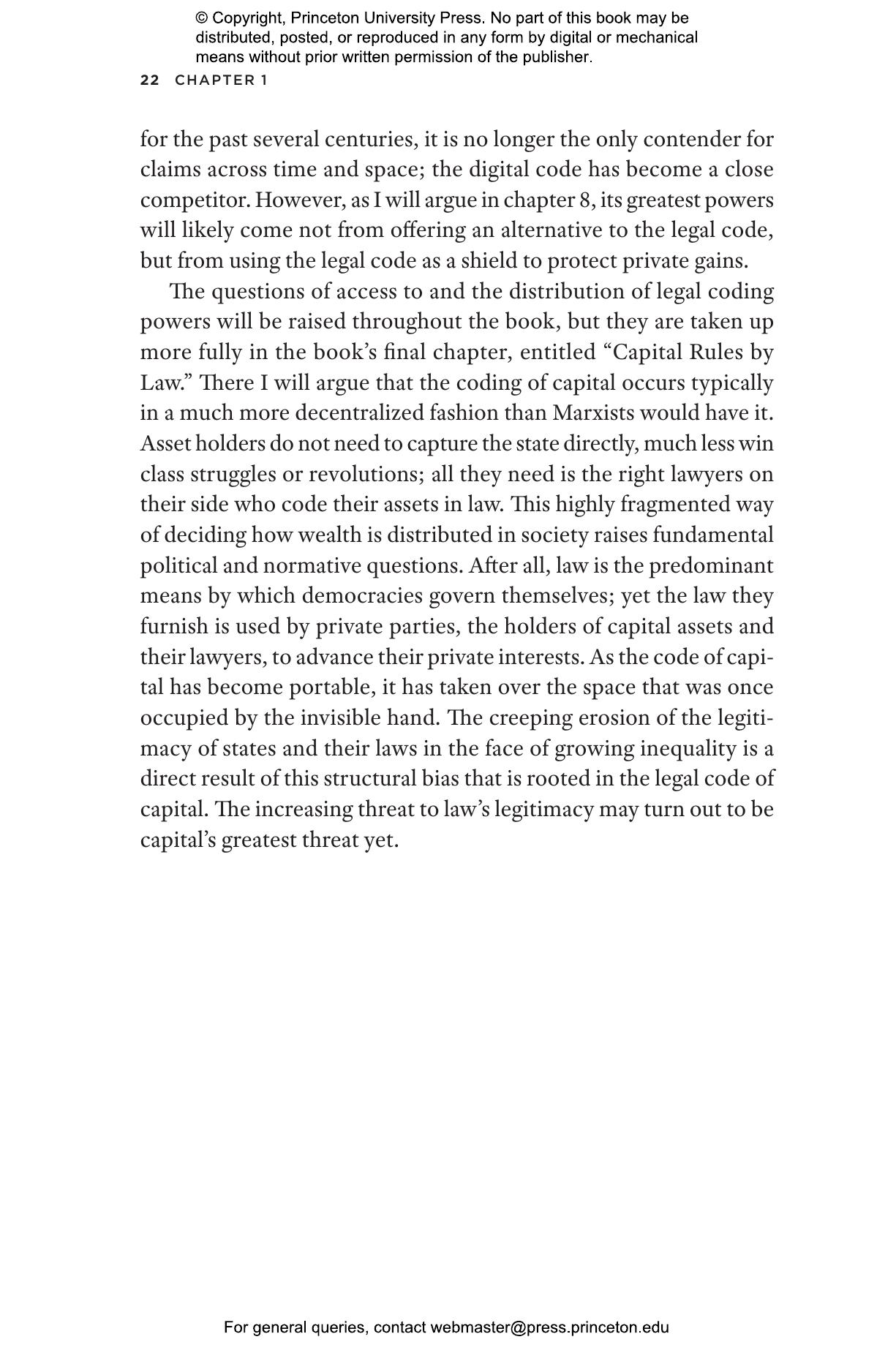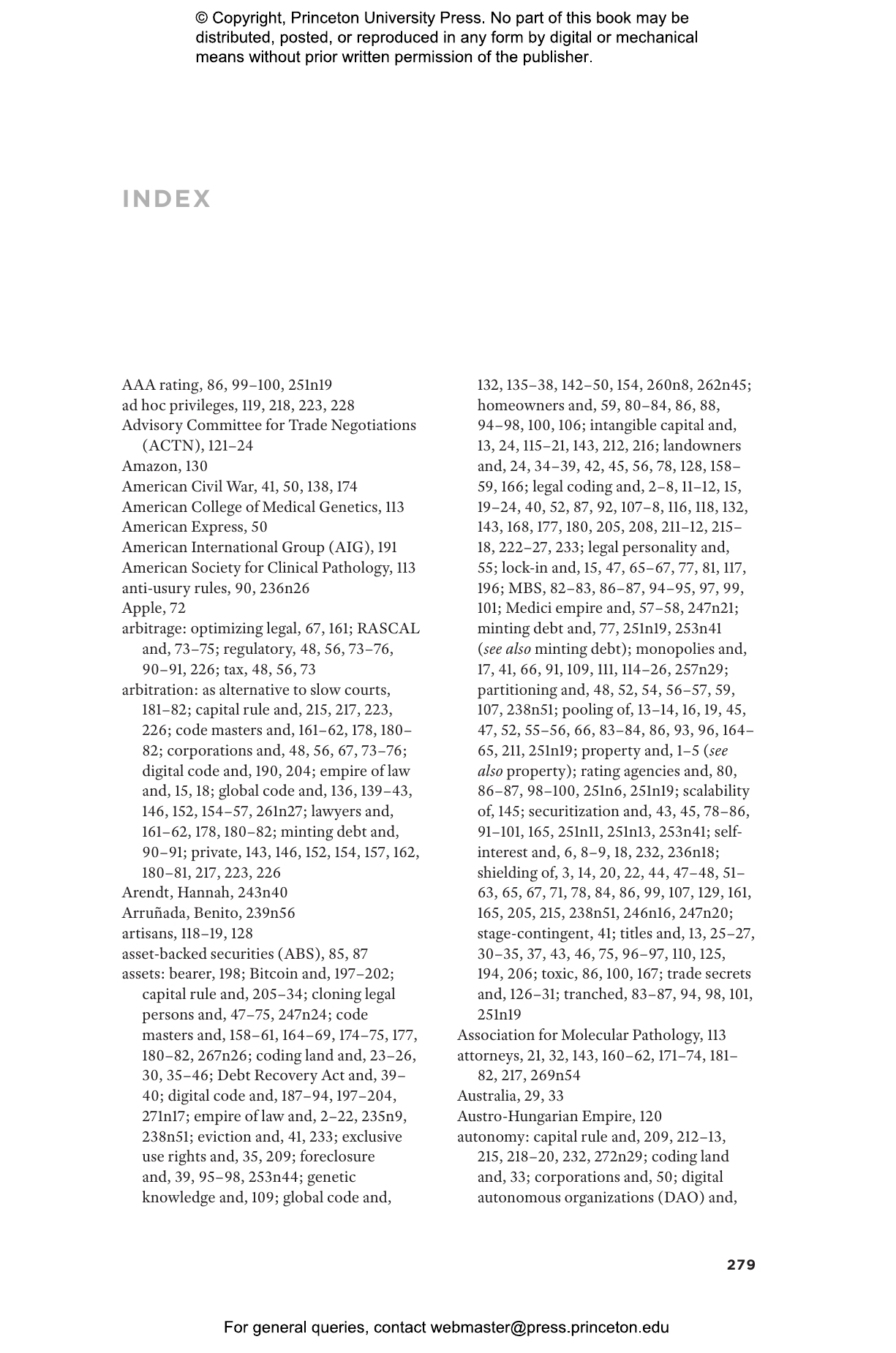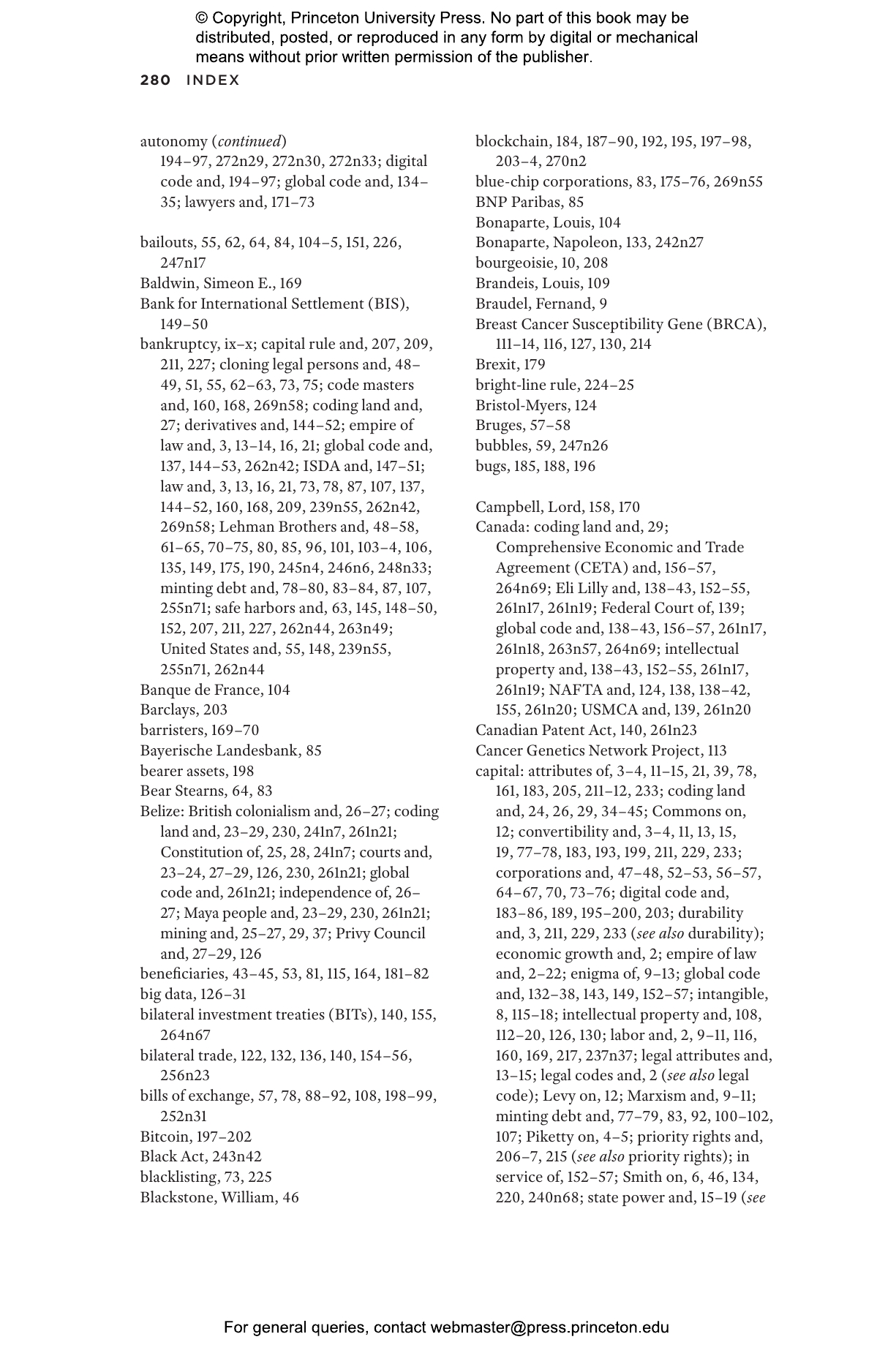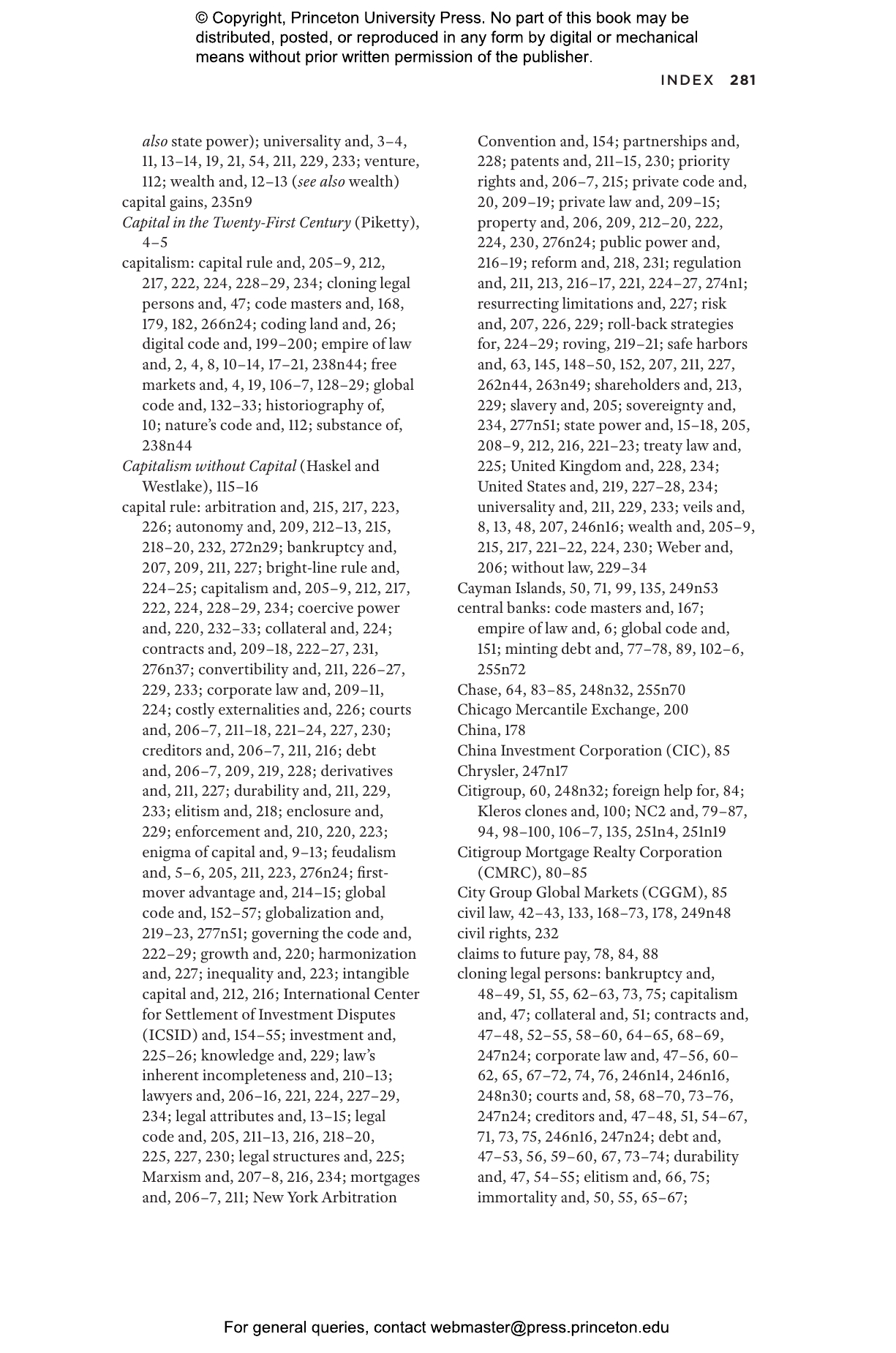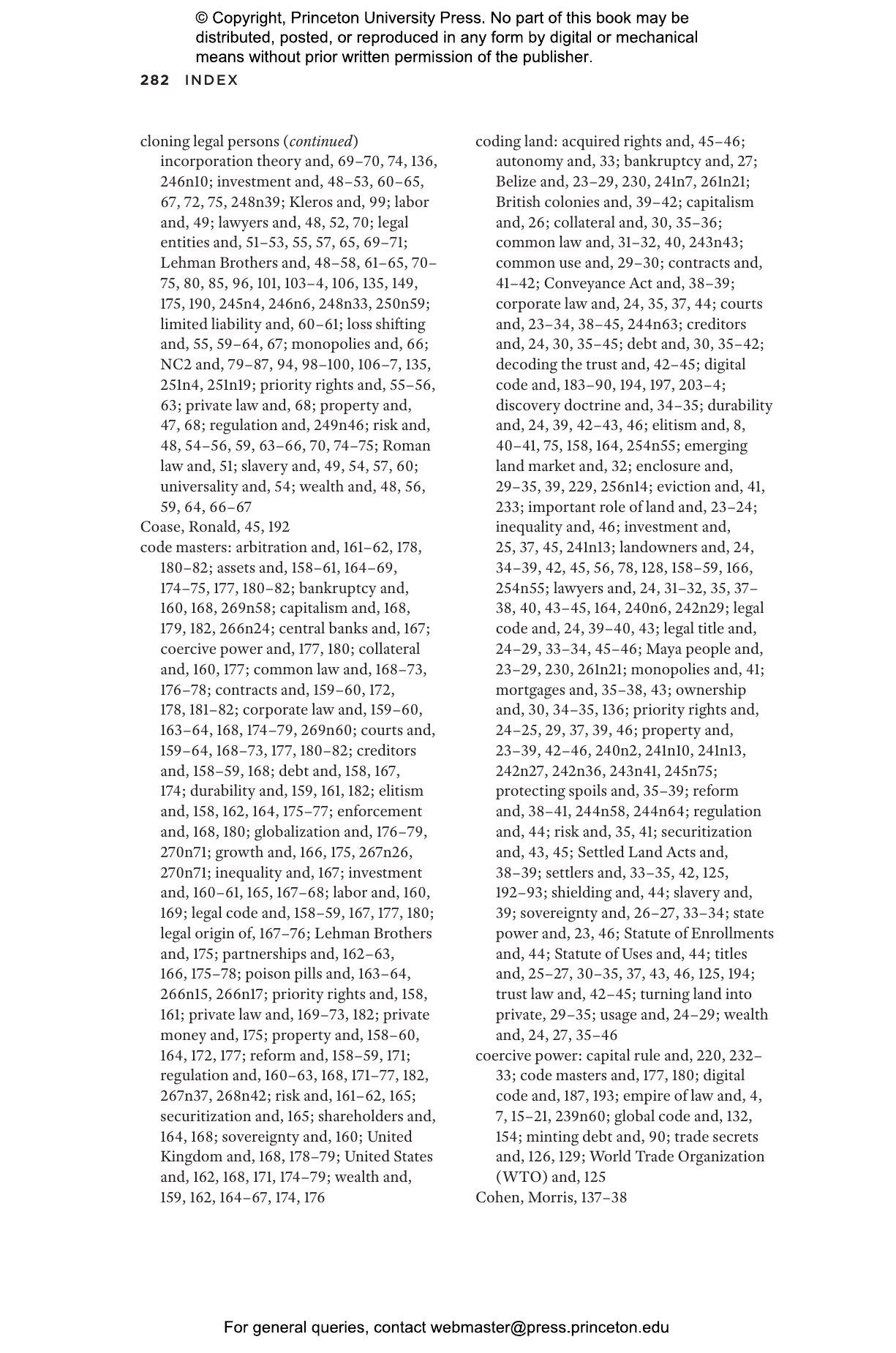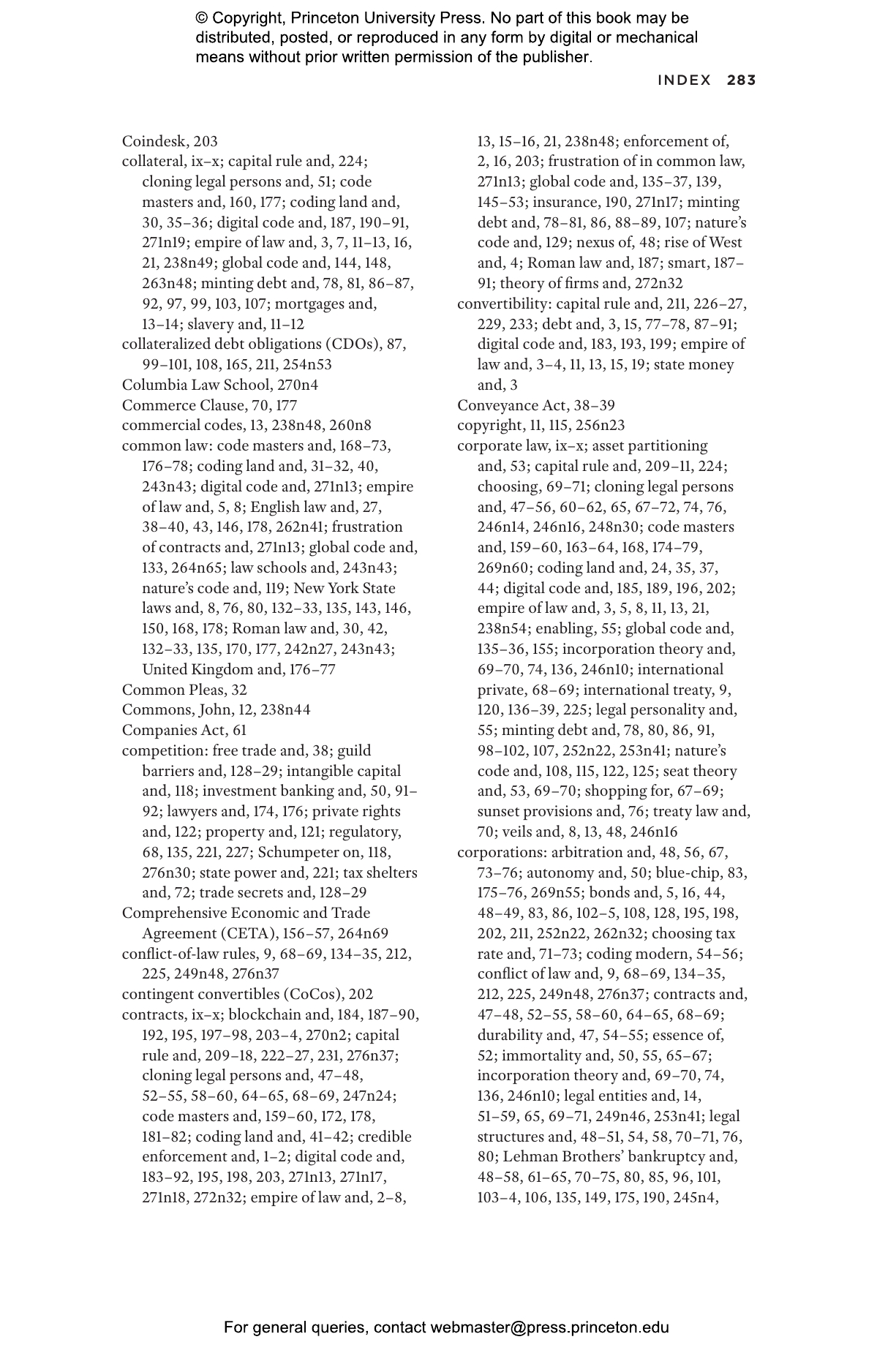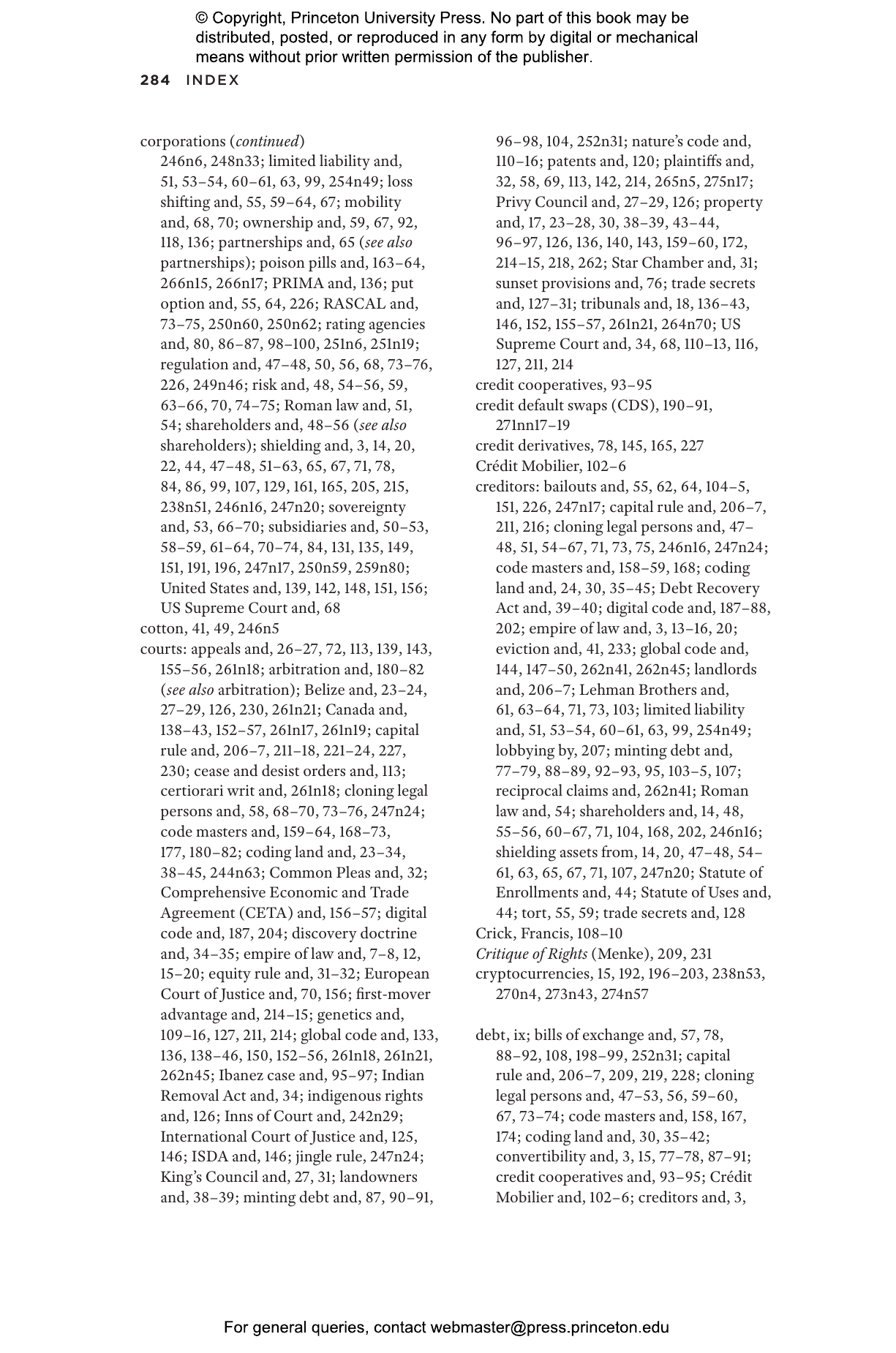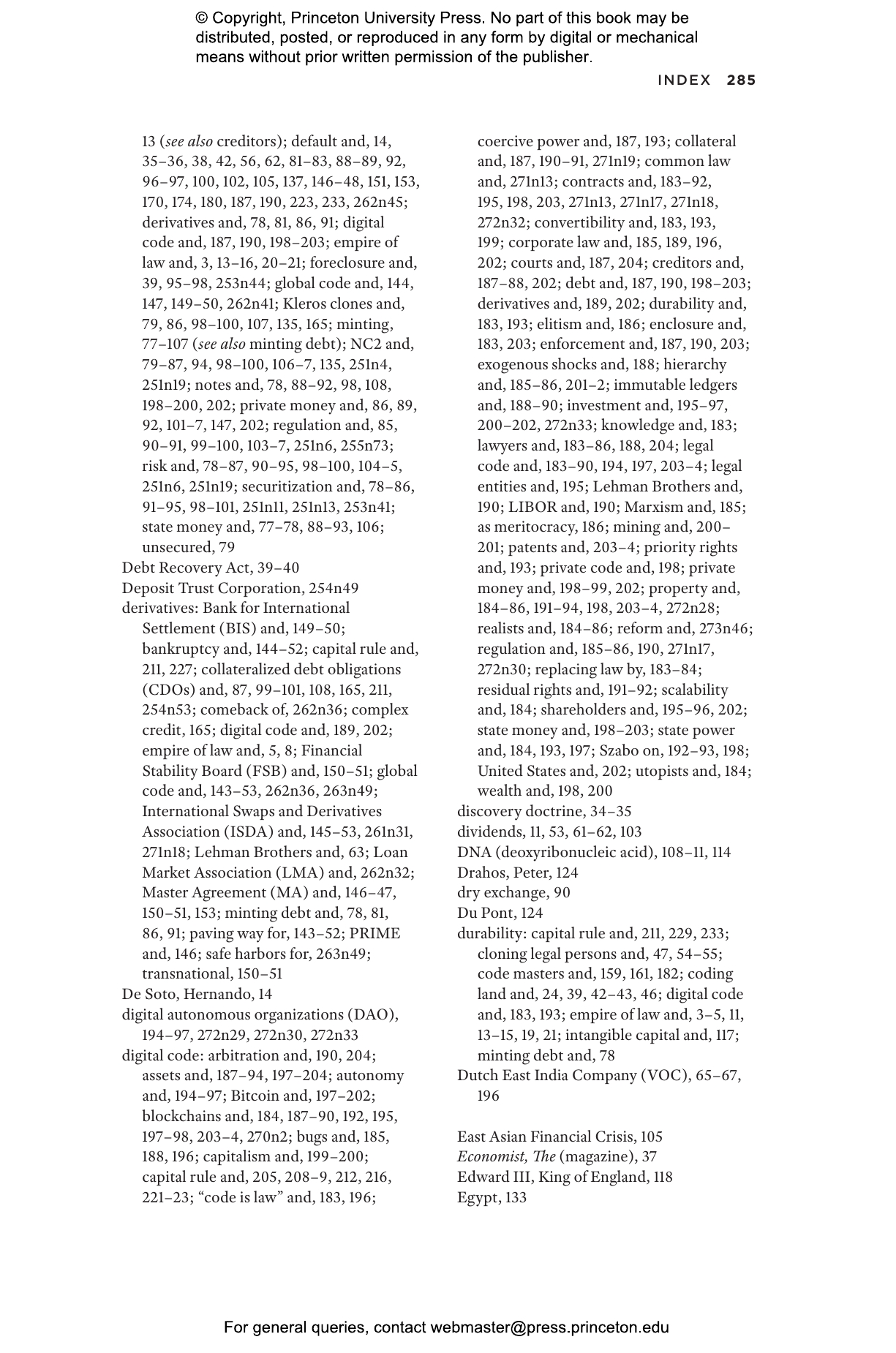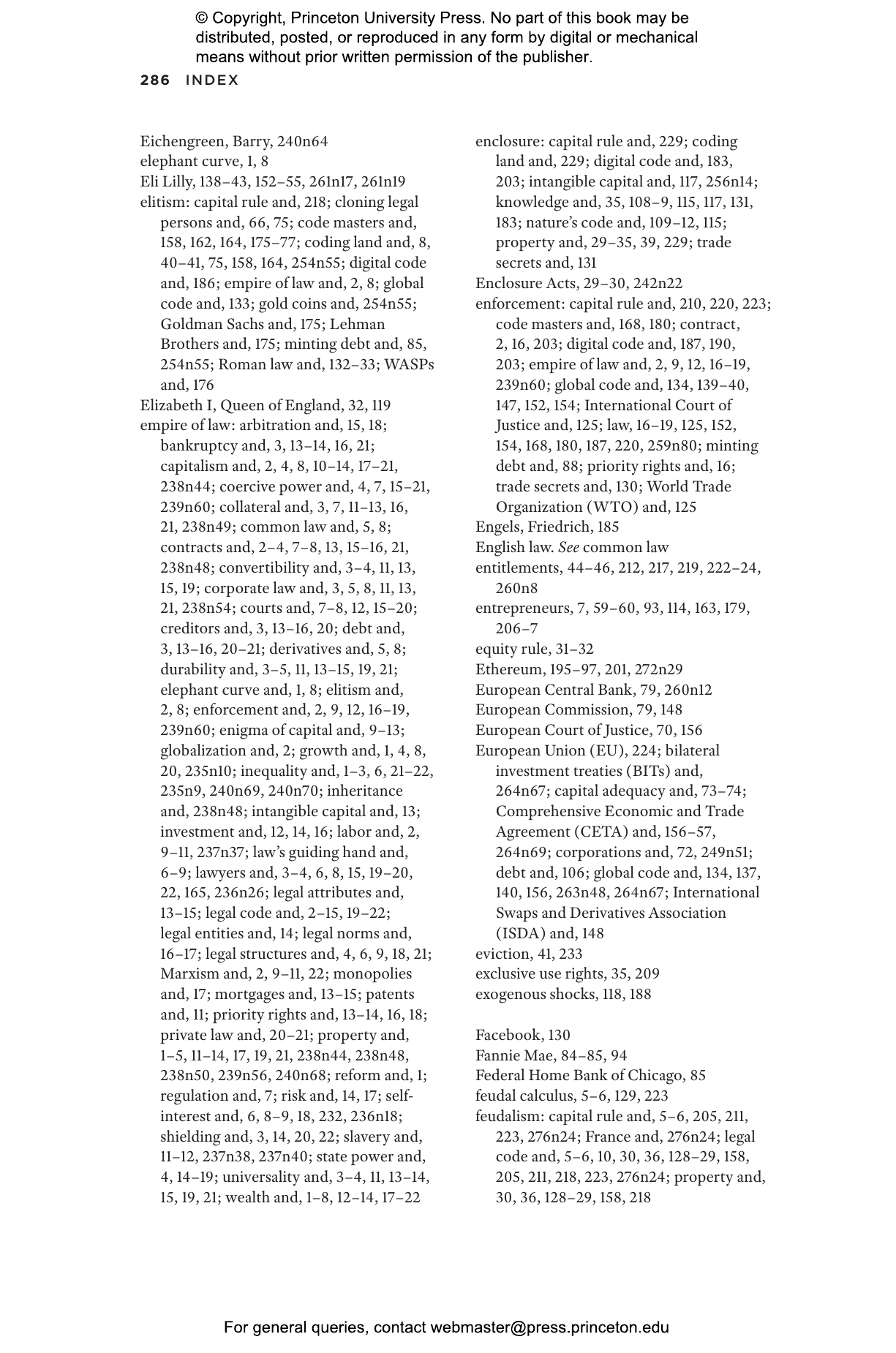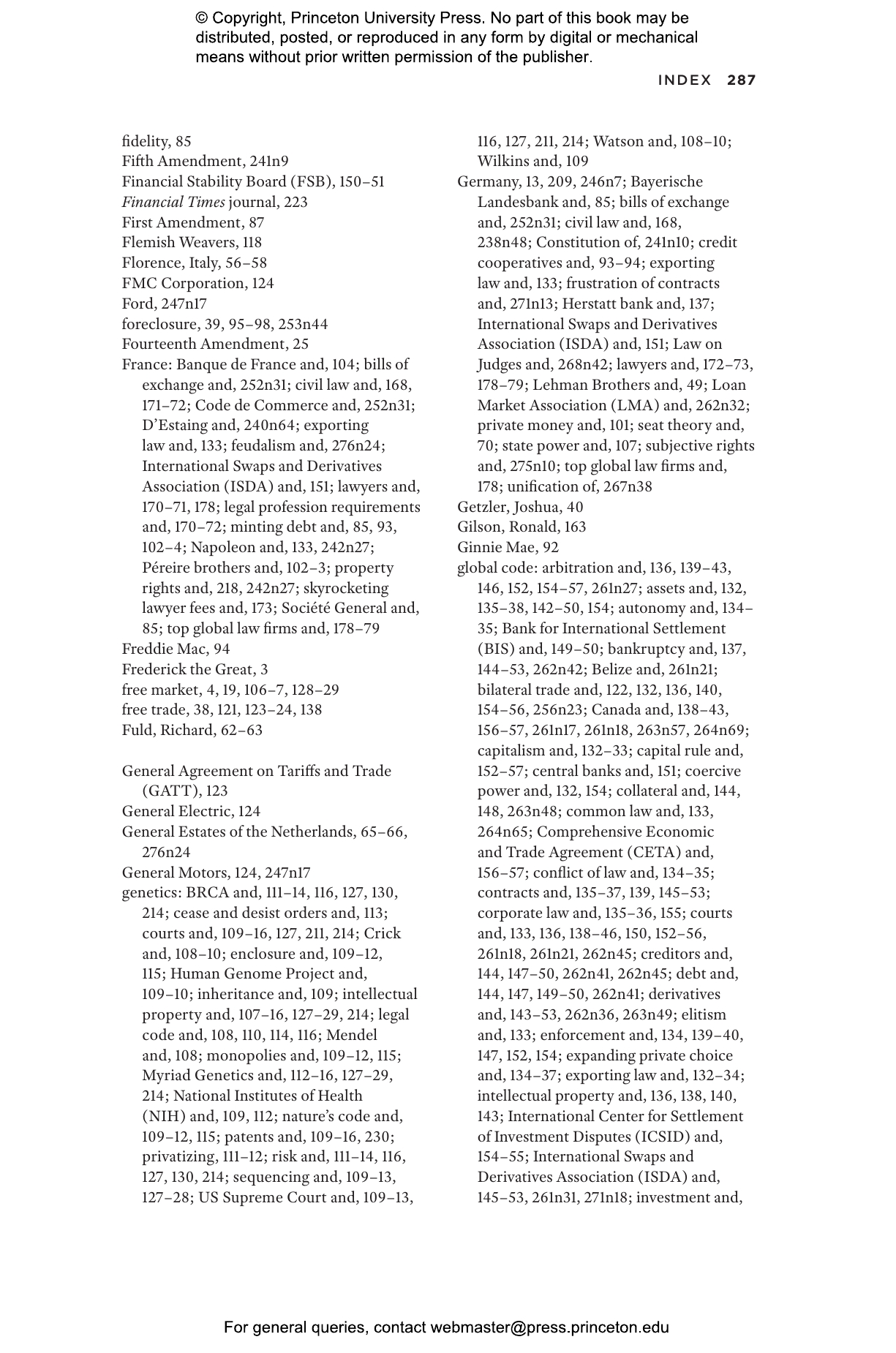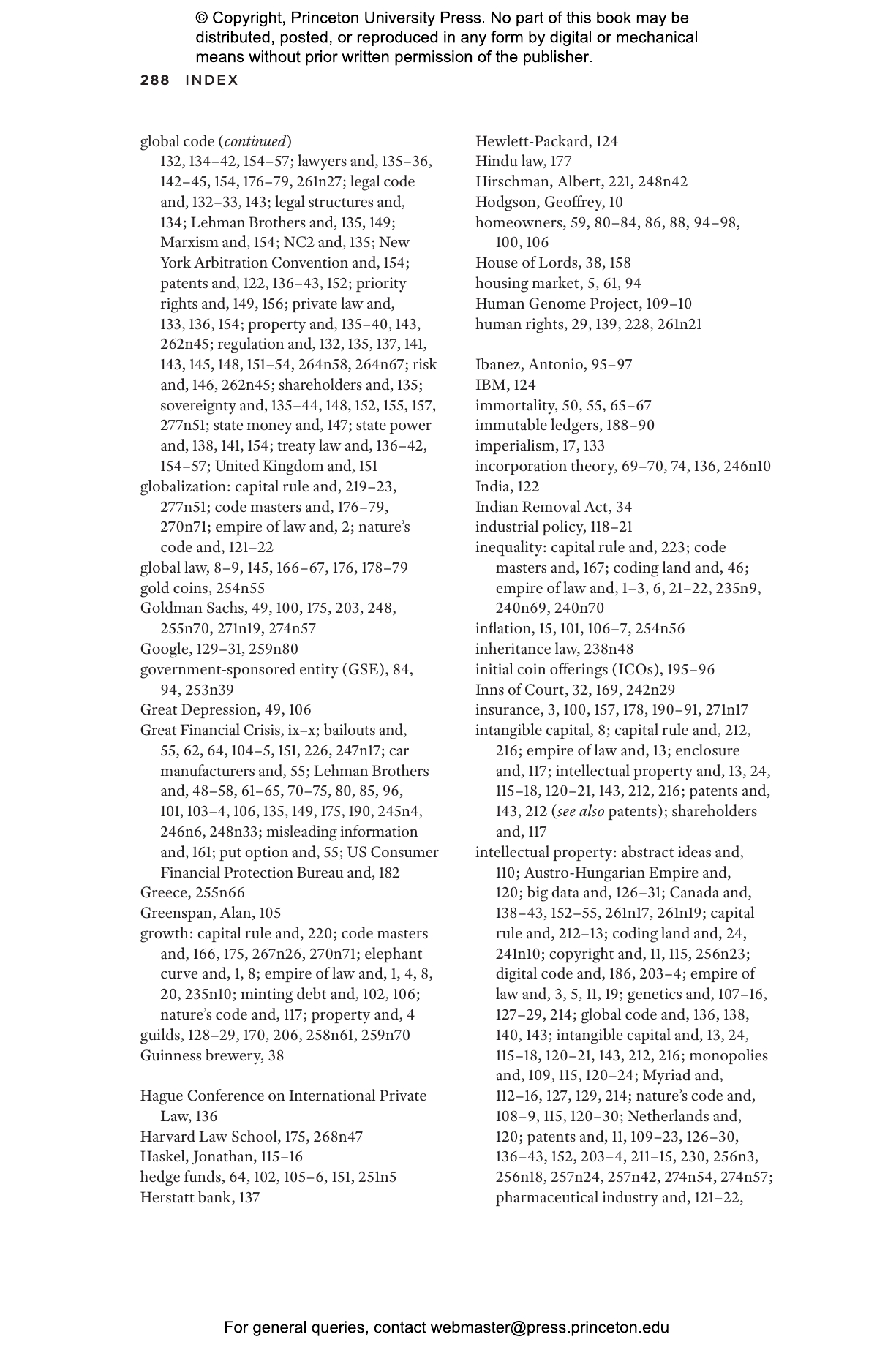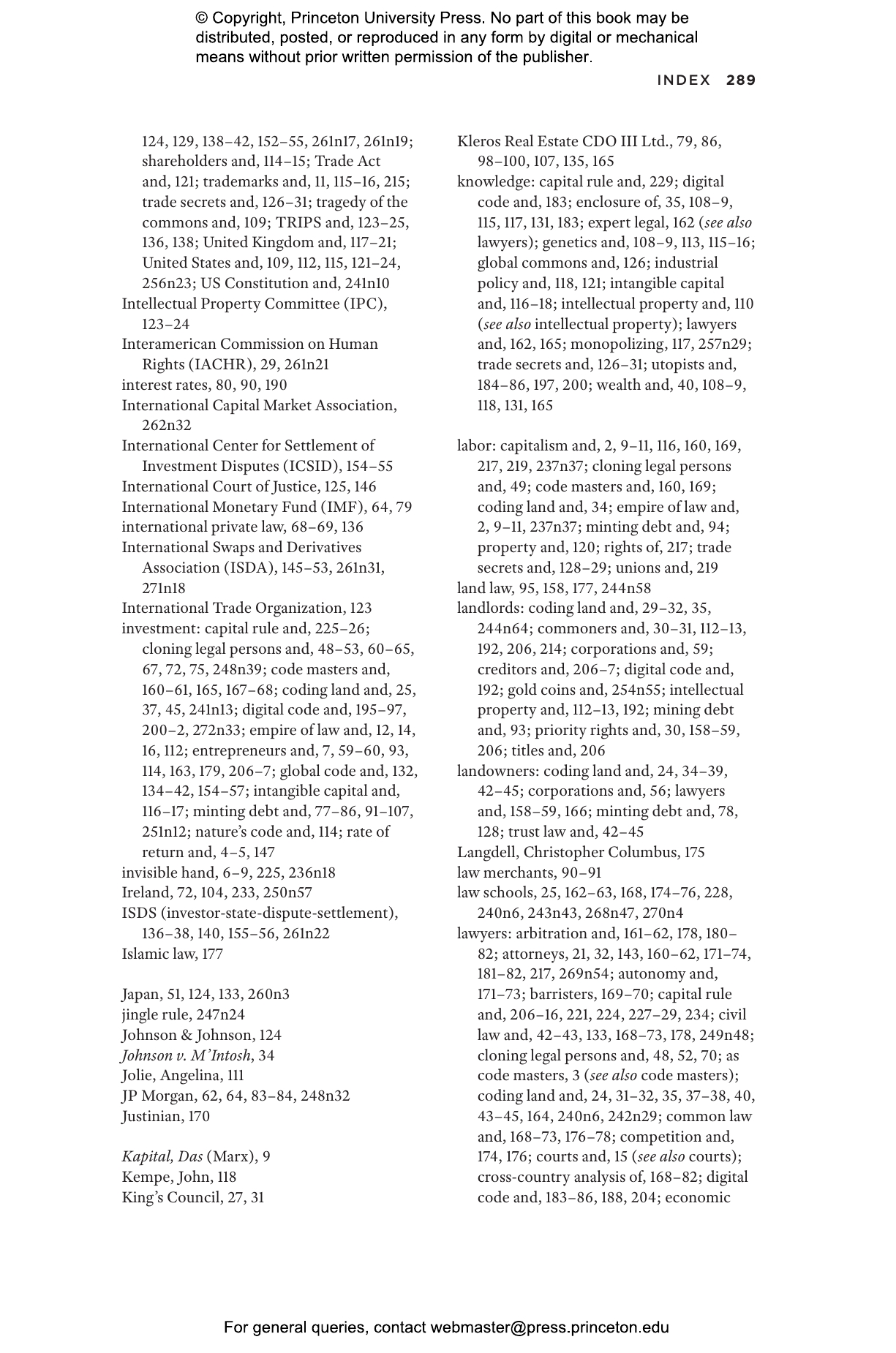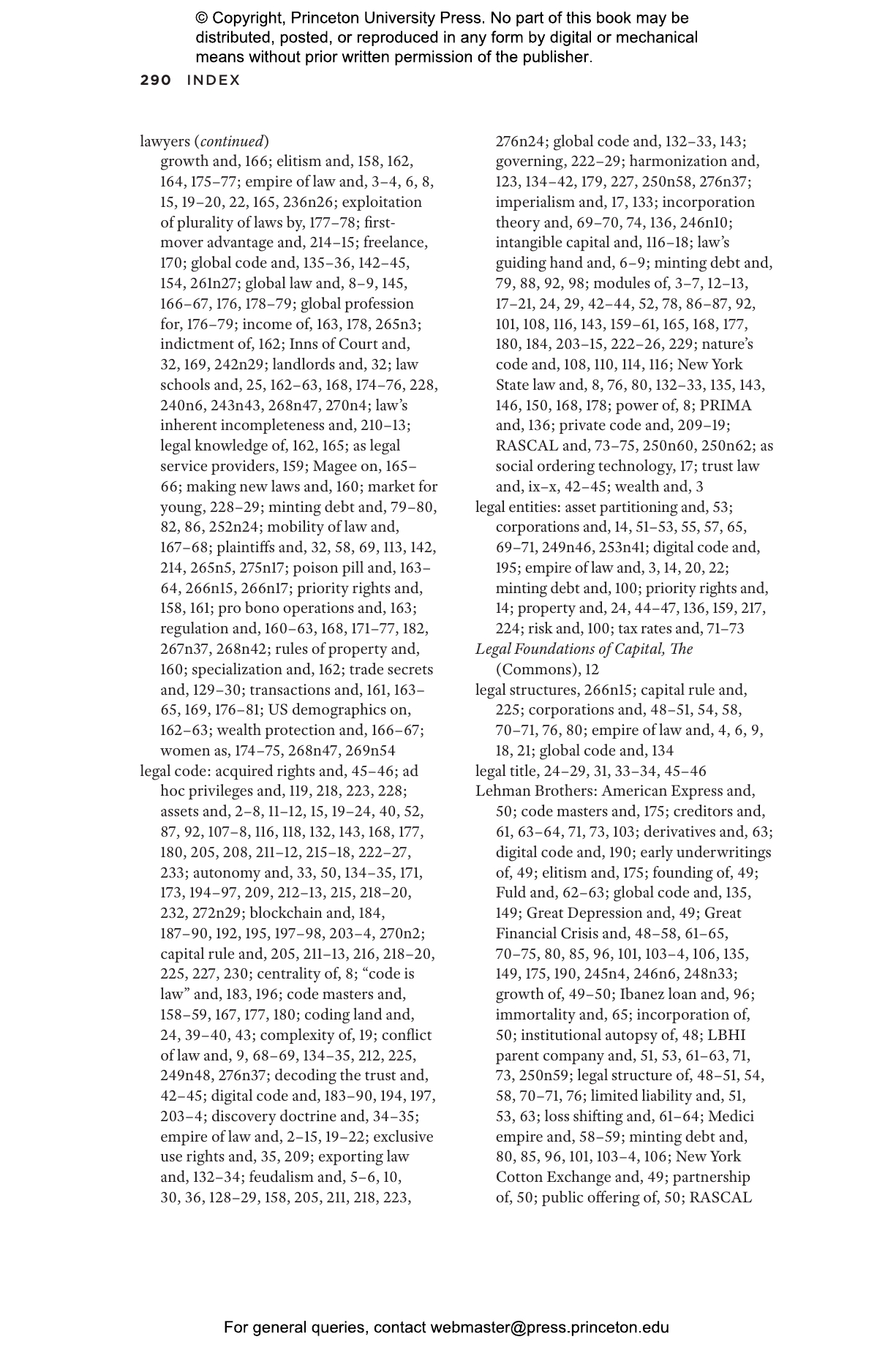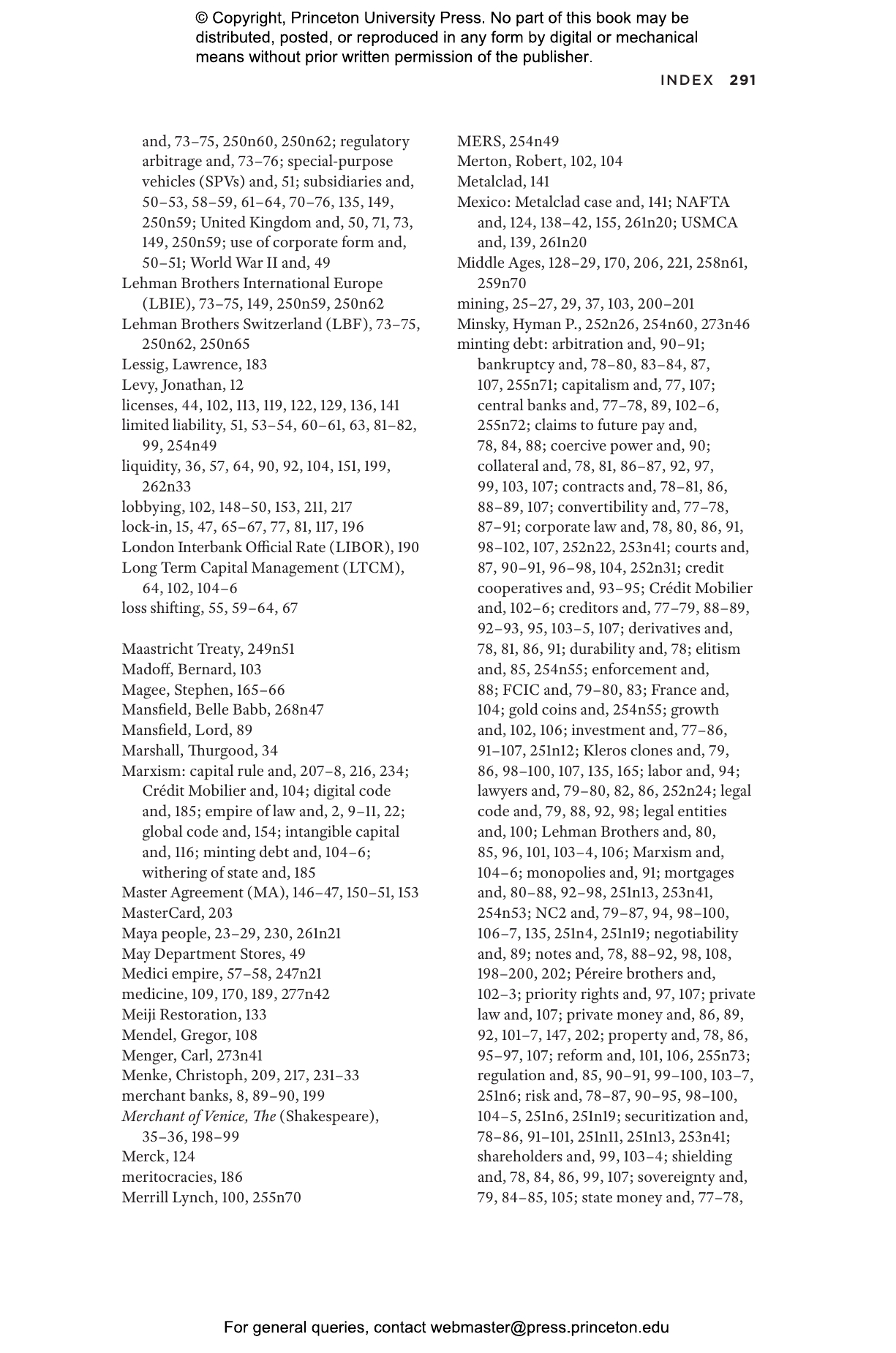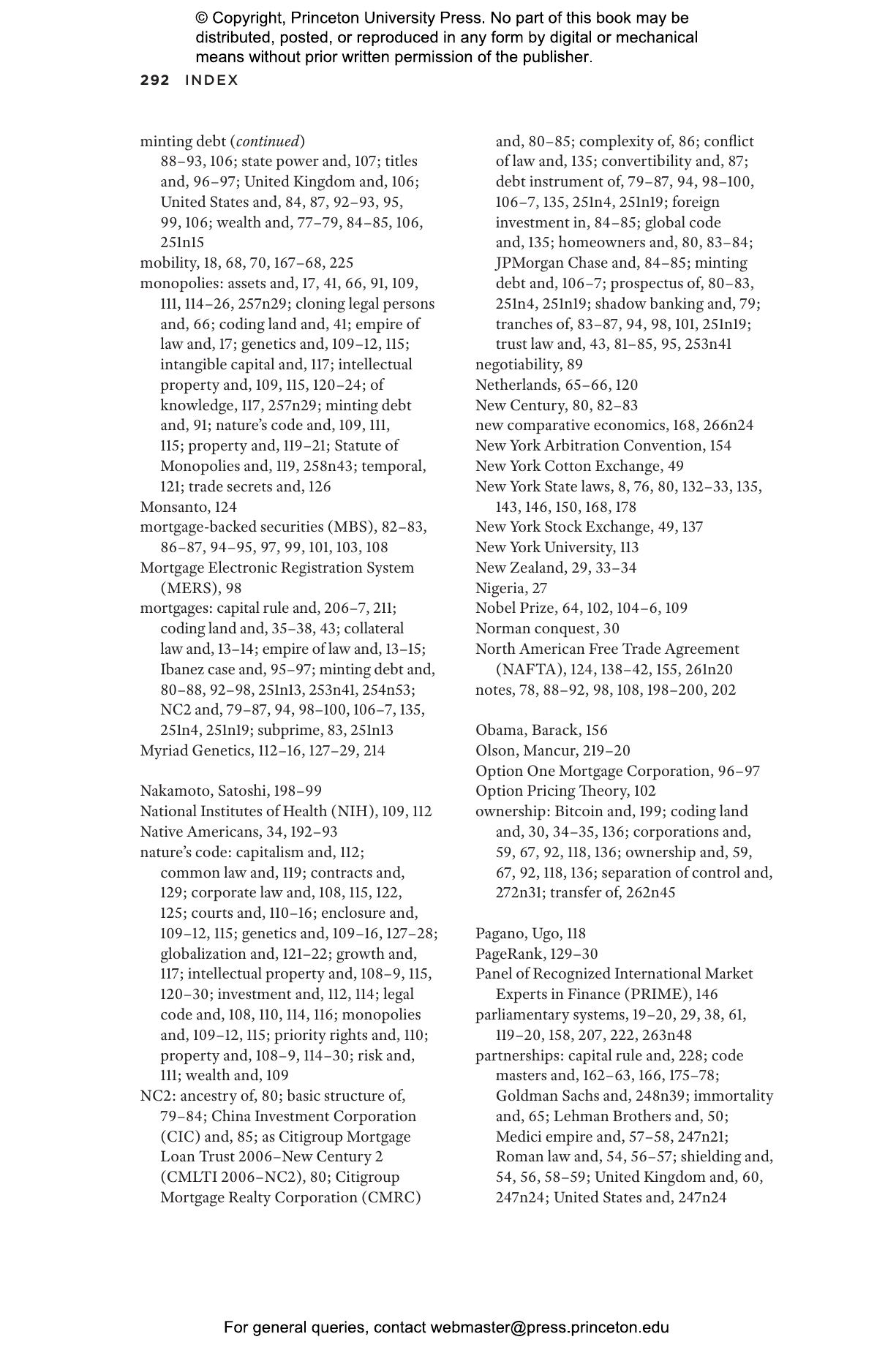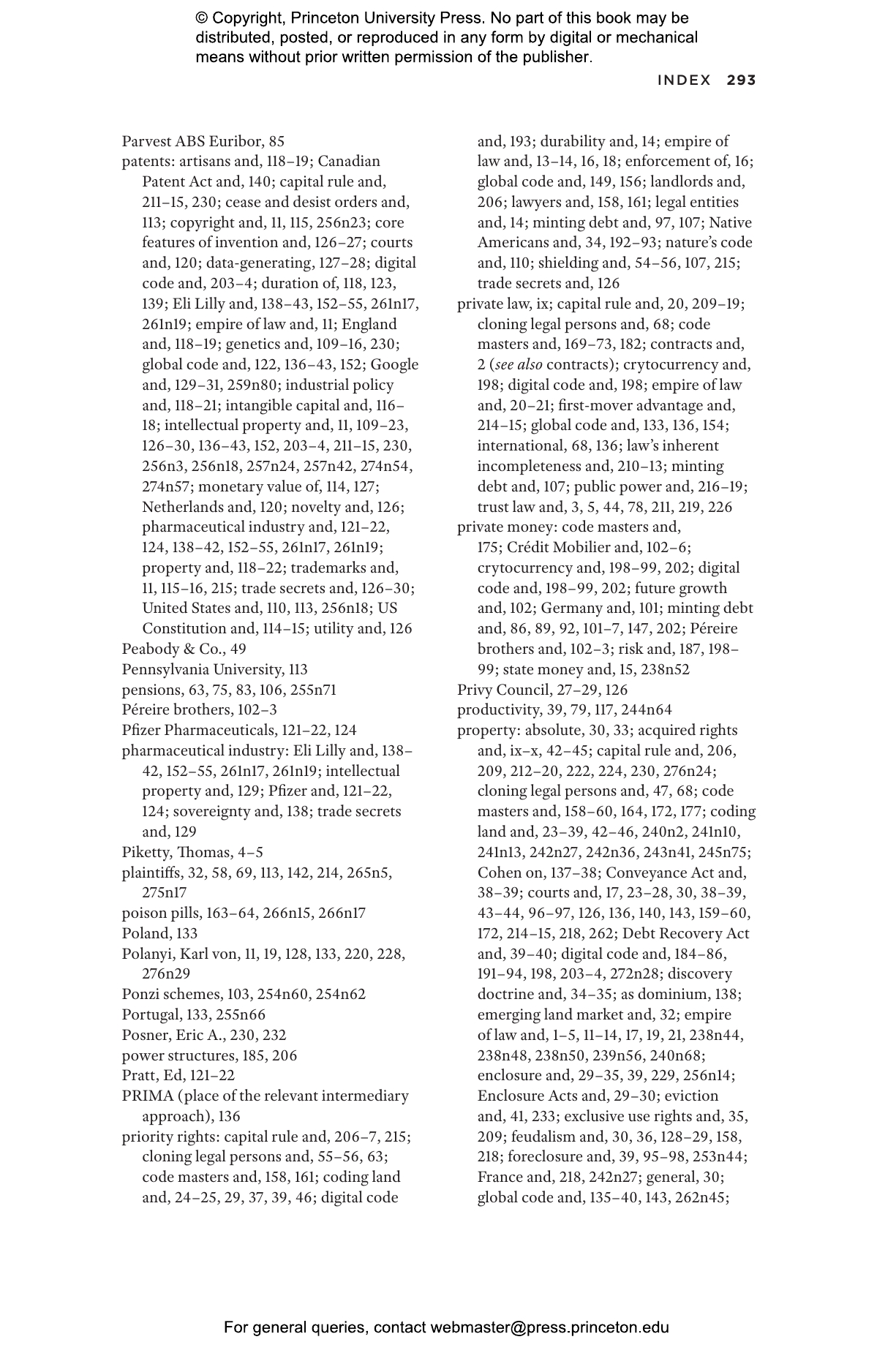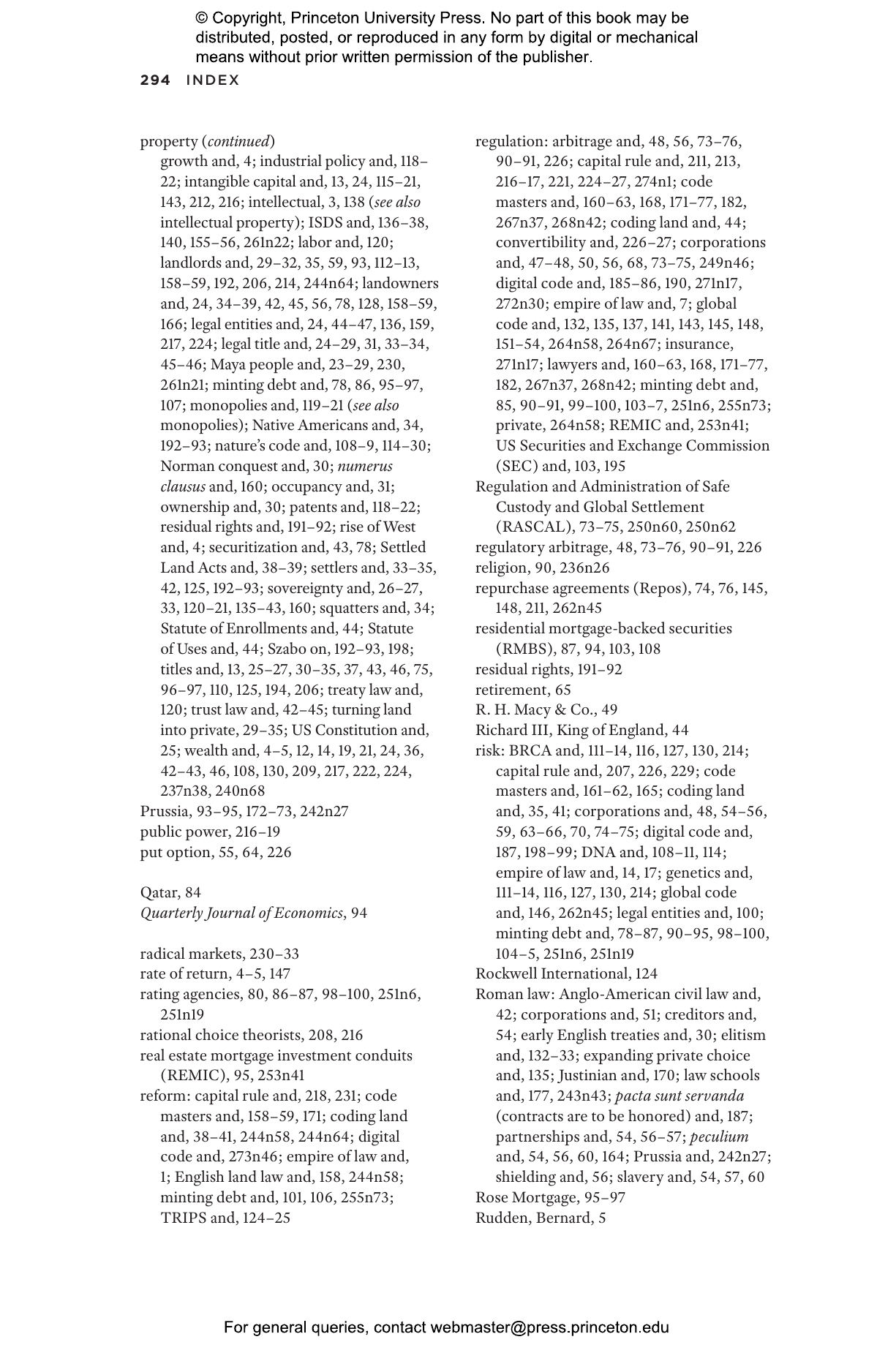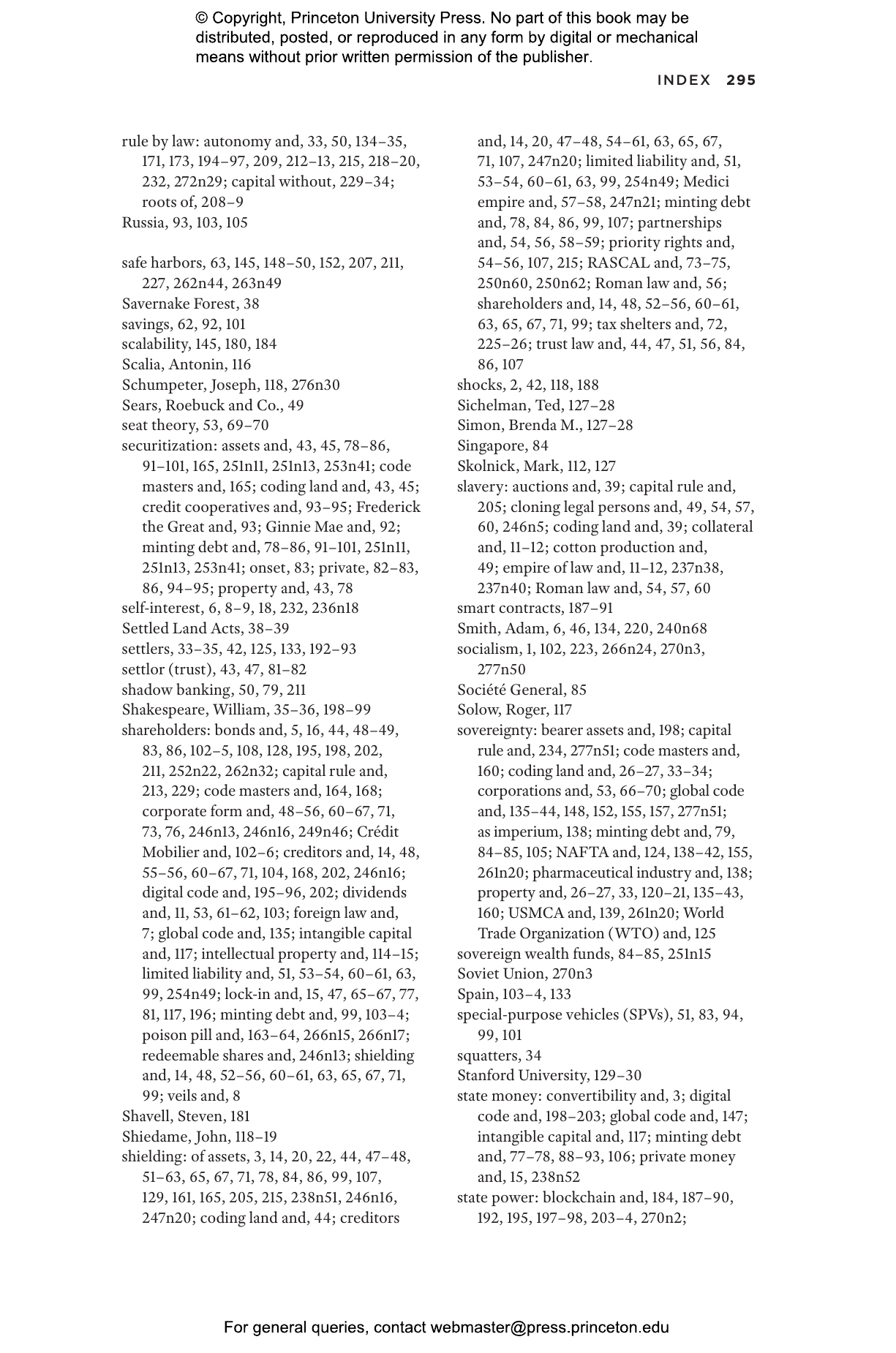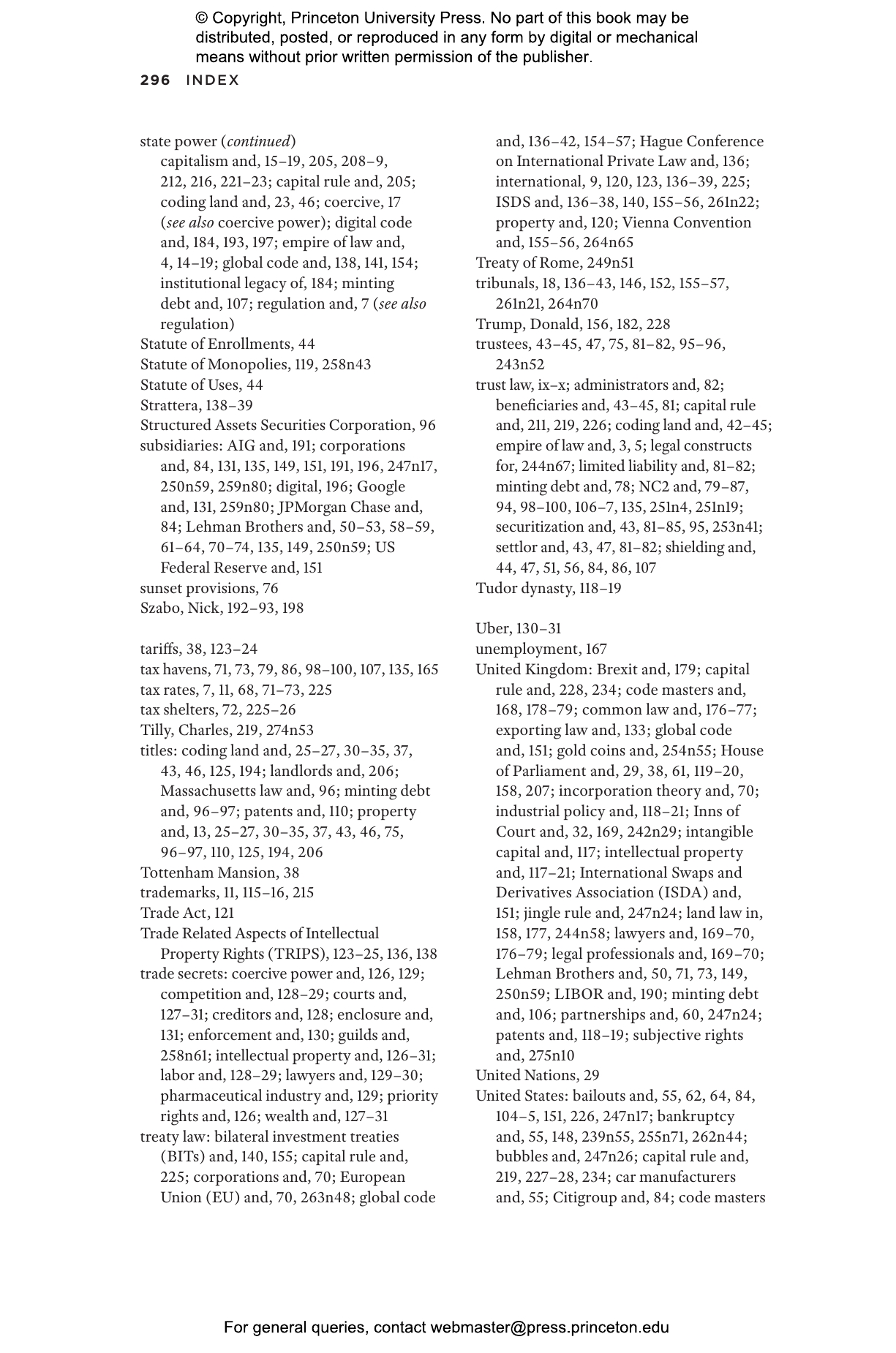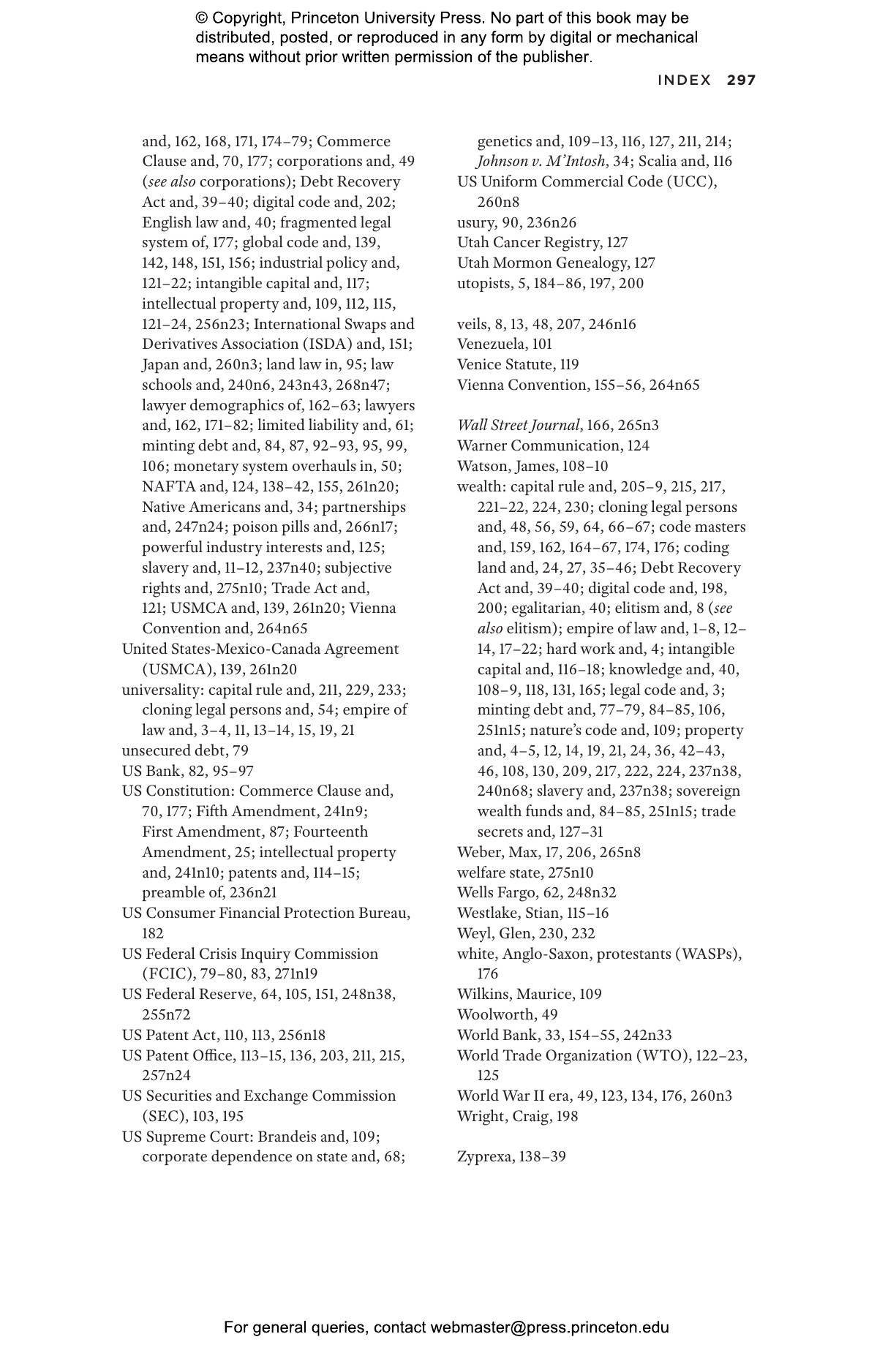Capital is the defining feature of modern economies, yet most people have no idea where it actually comes from. What is it, exactly, that transforms mere wealth into an asset that automatically creates more wealth? The Code of Capital explains how capital is created behind closed doors in the offices of private attorneys, and why this little-known fact is one of the biggest reasons for the widening wealth gap between the holders of capital and everybody else.
In this revealing book, Katharina Pistor argues that the law selectively “codes” certain assets, endowing them with the capacity to protect and produce private wealth. With the right legal coding, any object, claim, or idea can be turned into capital—and lawyers are the keepers of the code. Pistor describes how they pick and choose among different legal systems and legal devices for the ones that best serve their clients’ needs, and how techniques that were first perfected centuries ago to code landholdings as capital are being used today to code stocks, bonds, ideas, and even expectations—assets that exist only in law.
A powerful new way of thinking about one of the most pernicious problems of our time, The Code of Capital explores the different ways that debt, complex financial products, and other assets are coded to give financial advantage to their holders. This provocative book paints a troubling portrait of the pervasive global nature of the code, the people who shape it, and the governments that enforce it.
Awards and Recognition
- One of the Financial Times' Best Books of 2019: Economics
- One of the Financial Times' Readers' Best Books of 2019
- One of Business Insider's Richard Feloni's best books of 2019 on how we can rethink today's capitalism and improve the economy
- A Project Syndicate Best Read in 2019
"The result is nothing less than a crisis theory of law. Law as it currently functions is, for Pistor, constitutive of the order that creates and perpetuates inequality, opacity, dysfunction, and crisis, and ultimately puts at risk the legitimacy of the rule of law as such."—Adam Tooze, New York Review of Books
"Almost anybody who reads this book will benefit; a must-read for corporate lawyers, investment bankers, capital providers."—Rahul Saikia, Financial Times
"Those of us concerned with inequality should be focusing a great deal of attention on the basics of valuation, which means looking hard at the way law makes money."—Roy Kreitner, LPEblog
"The wealth drawn from both the digital darkness and the dark pools of Wall Street exists only by virtue of the law’s encasement. . . . [Pistor's] metaphors allow us to see how, by ceding democratic control of law, we’ve 'depoliticized critical questions of self-governance,' preserving mobility for some and blocking it for others."—Quinn Slobodian, Boston Review
"So much discussion around wealth and inequality involves gawking at statistics people don’t understand. Katharina Pistor offers a fascinating argument as to why inequality is increasing, and does so without having to construct class identities, as Marxists feel compelled to do, or to make heroic assumptions about the rationality of human beings, as rational choice theorists would have it."—David Murphy, Open Letters Review
"Through extensive case studies, Pistor demonstrates that no one deliberately set out to construct the ‘empire of law.’ Rather, it is the result of a decentralized, unplanned process in which individual private lawyers helped individual clients protect their assets through the use of pre-existing legal constructs."—Nouriel Roubini, Project Syndicate
"The Code of Capital is a welcome interdisciplinary contribution which attaches fresh dimensions to debates on the political economy of wealth and inequality. . . .it is a valuable resource for anyone seeking to grapple with the formidable nature of global capital."—Juvaria Jafri, LSE US Centre
"Pistor has exploded the belief of most people that financial instruments traded across the world are creatures of law of sovereign states and are secure . . . . [The Code of Capital is] a truly remarkable book bringing out clearly one of the major causes of periodic financial crisis."—Madras Sivaraman, International Journal of Environment Studies
"In possibly one of the most important non-fiction books of the decade, Pistor shines a clear and sharp light on how legal codes – increasingly determined in private law offices in New York and London – shape the contours of economic activity, ownership, and control under contemporary global capitalism"—Jayati Ghosh, Project Syndicate
"A thought-provoking read."—Business & Management
"This is a fascinating book that demonstrates how the rights of capital have been entrenched in the international legal system. The Code of Capital opens the way for a thoughtful discussion about the treaties on capital flows and privileges that need to be rewritten. A must-read."—Thomas Piketty, author of Capital in the Twenty-First Century
"The Code of Capital is essential reading for anyone interested in understanding how global capital markets function. In clear and understandable terms, Pistor traces the legal coding of capital, the explosive expansion of finance, and the steep fall of the global financial crisis."—Cathy M. Kaplan, senior counsel, Sidley Austin LLP
"Law, Pistor shows in this breakthrough book, is the essential means by which increasingly intangible and mobile assets are protected against control, especially democratic control. Understanding the intricacy of how law works to produce and safeguard soaring wealth for the rich is essential for confronting the inequality crisis of our time. Brilliant, clear, and pithy, The Code of Capital is an essential contribution for reformers and scholars alike."—Samuel Moyn, author of Not Enough: Human Rights in an Unequal World
"Katharina Pistor has crafted a powerful and relentlessly intelligent argument about the importance of law for modern capital. Written with lucid erudition, her book explores legal patterns and relationships underlying centuries of economic development. Anyone interested in finance, wealth, or inequality will want to engage this ambitious and innovative work."—Bruce G. Carruthers, Northwestern University
"The Code of Capital delivers the keys to understanding how law and lawyers push the property system toward concentrated and entrenched wealth. Many of its insights are timeless, but Pistor shows how globalization has spun these mechanisms into overdrive. A must-read for comprehending financial capitalism and its threat to democratic citizenship."—Roy Kreitner, author of Calculating Promises: The Emergence of Modern American Contract Doctrine
